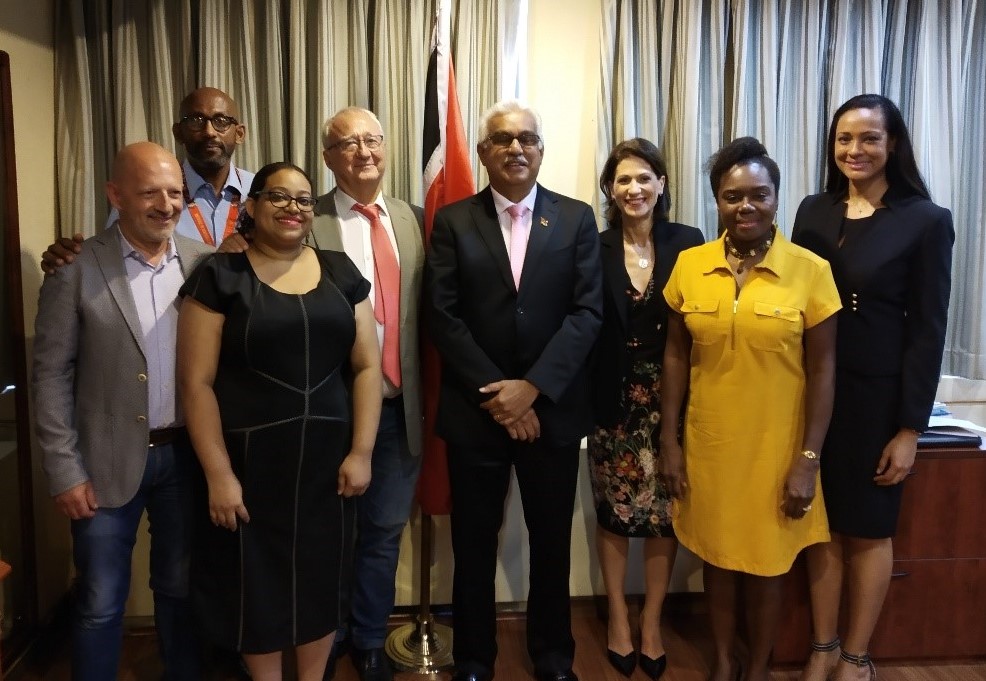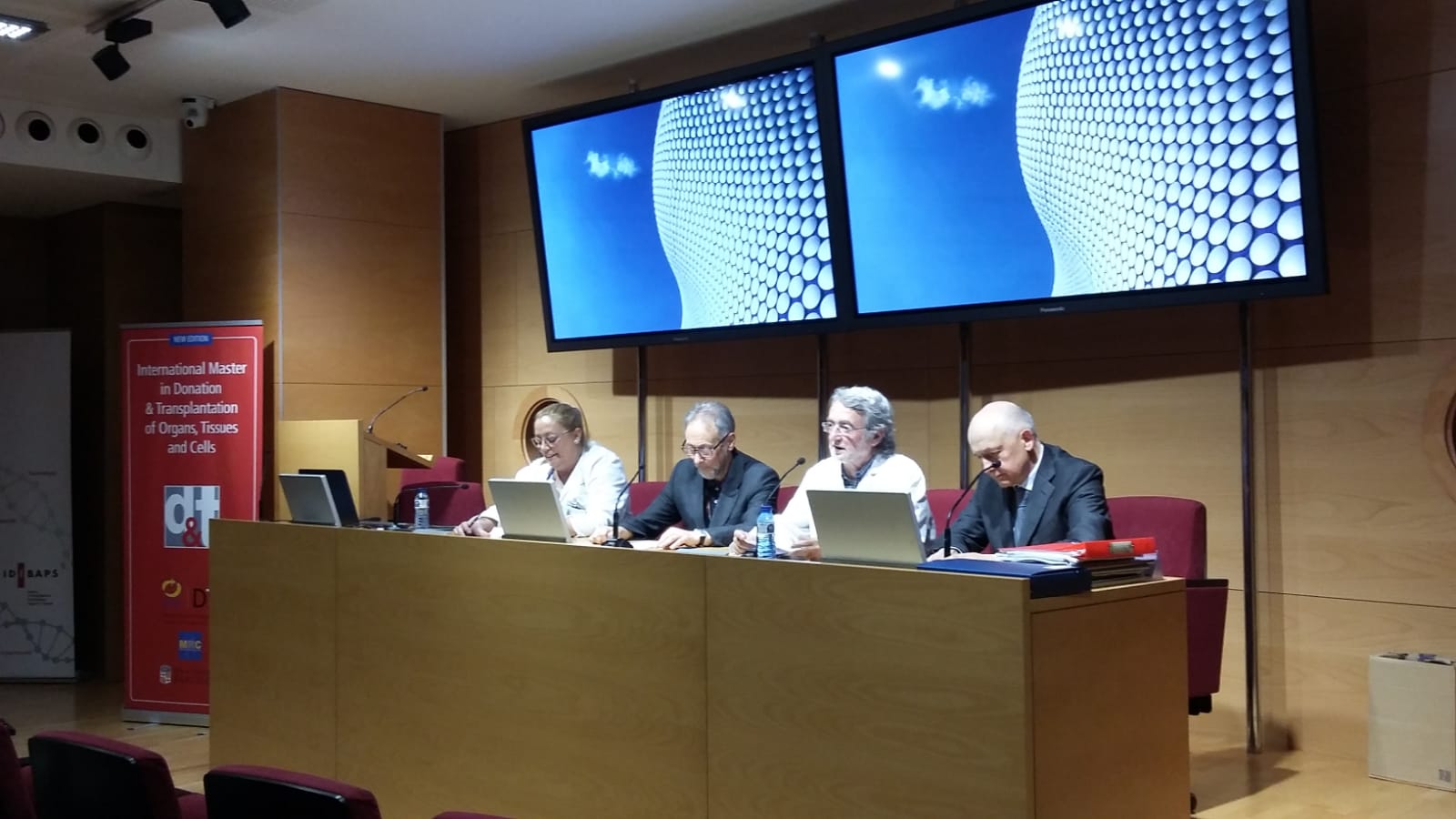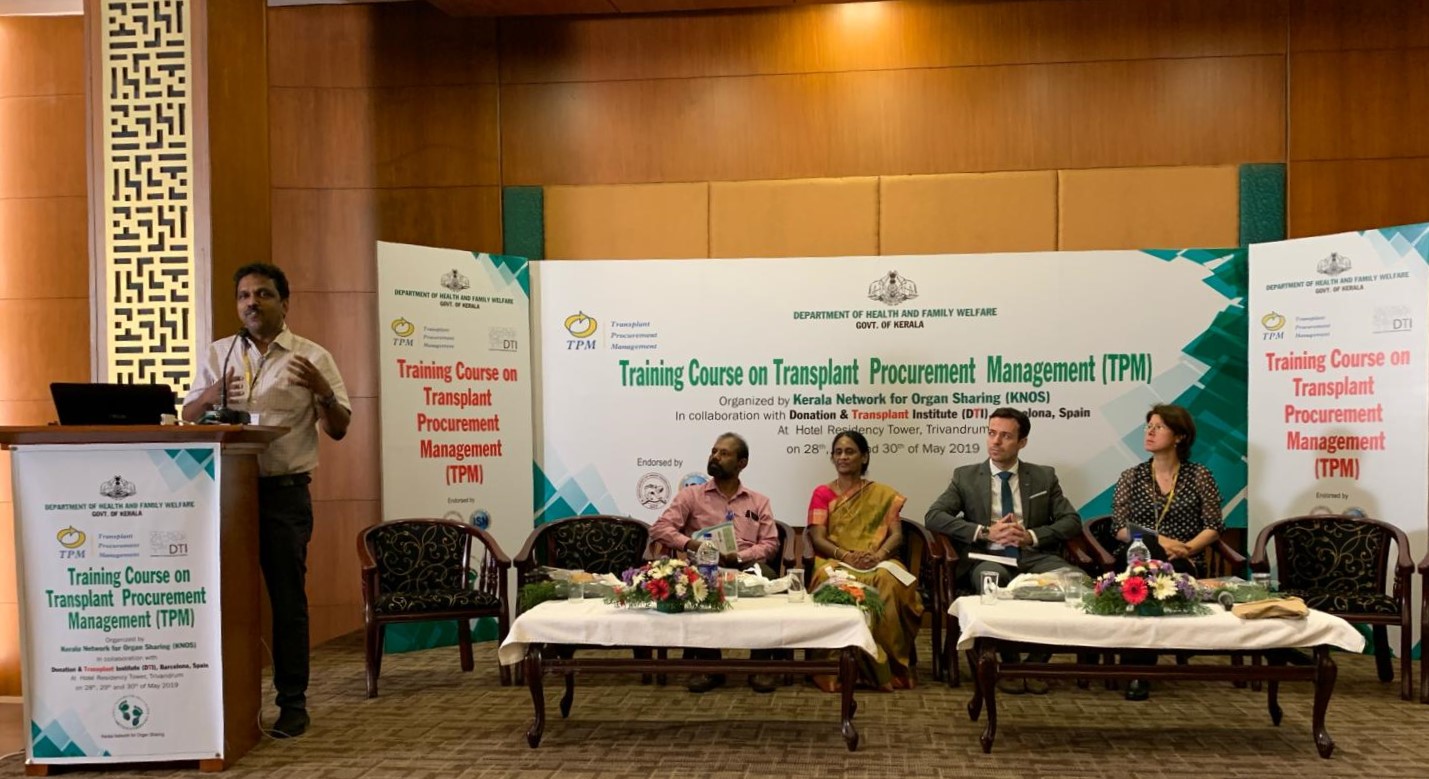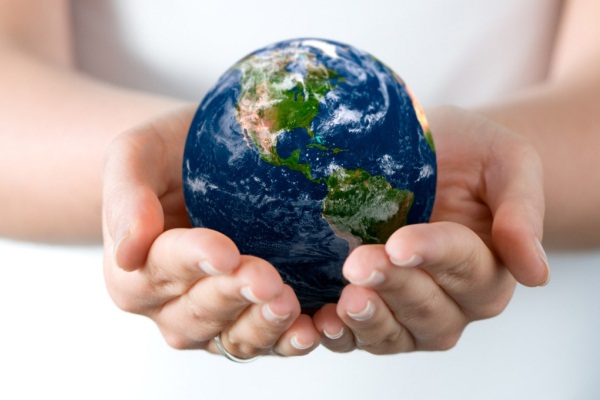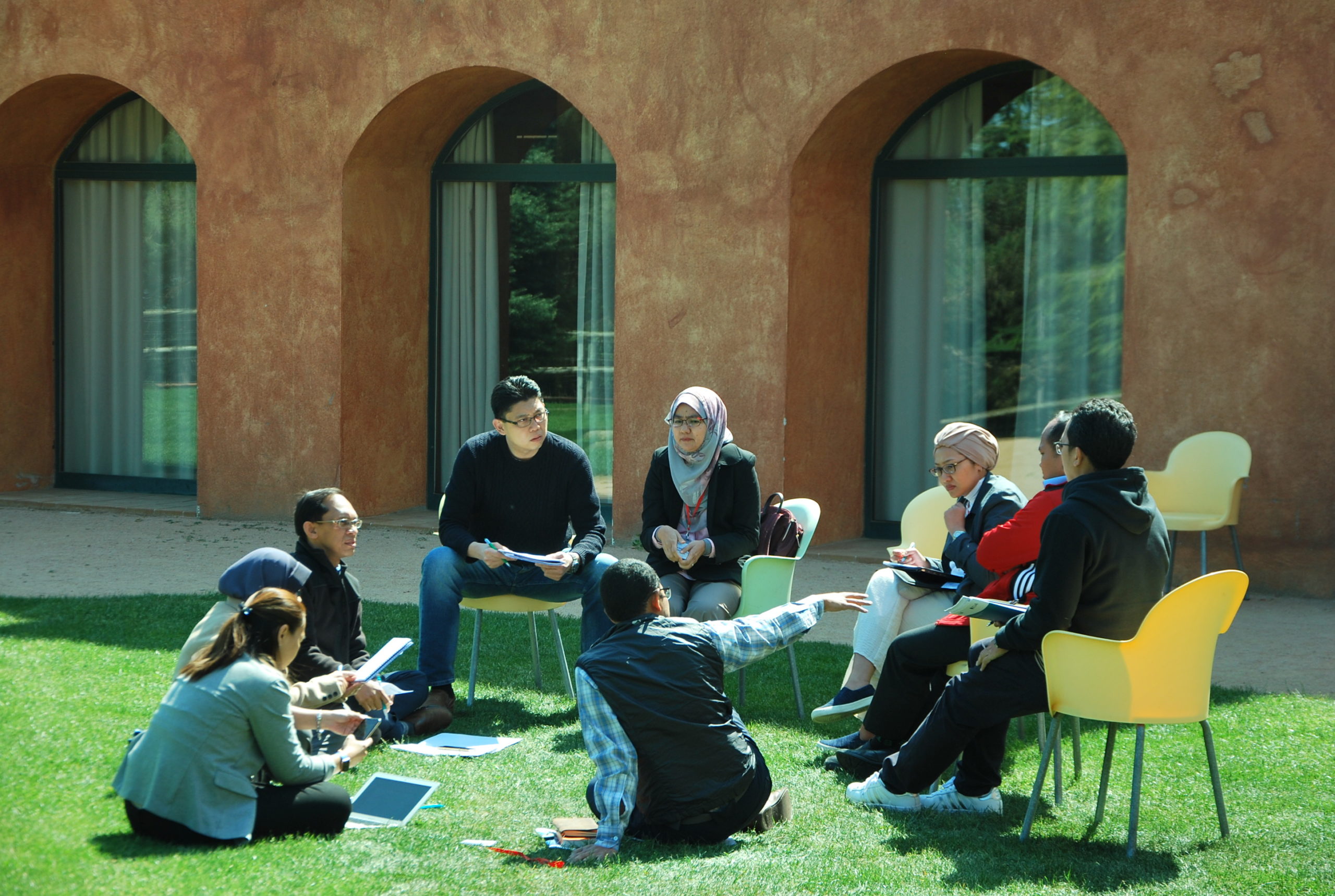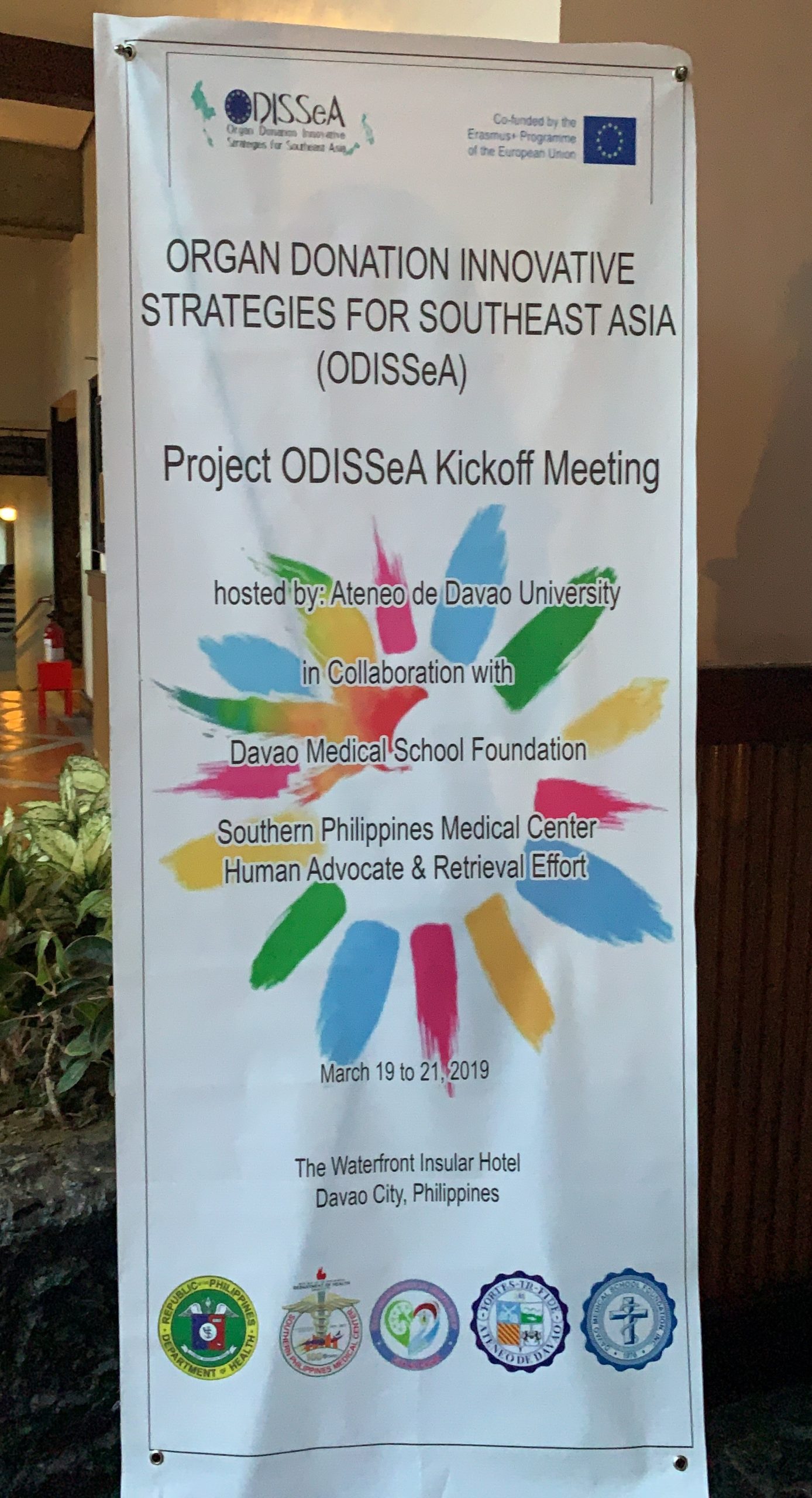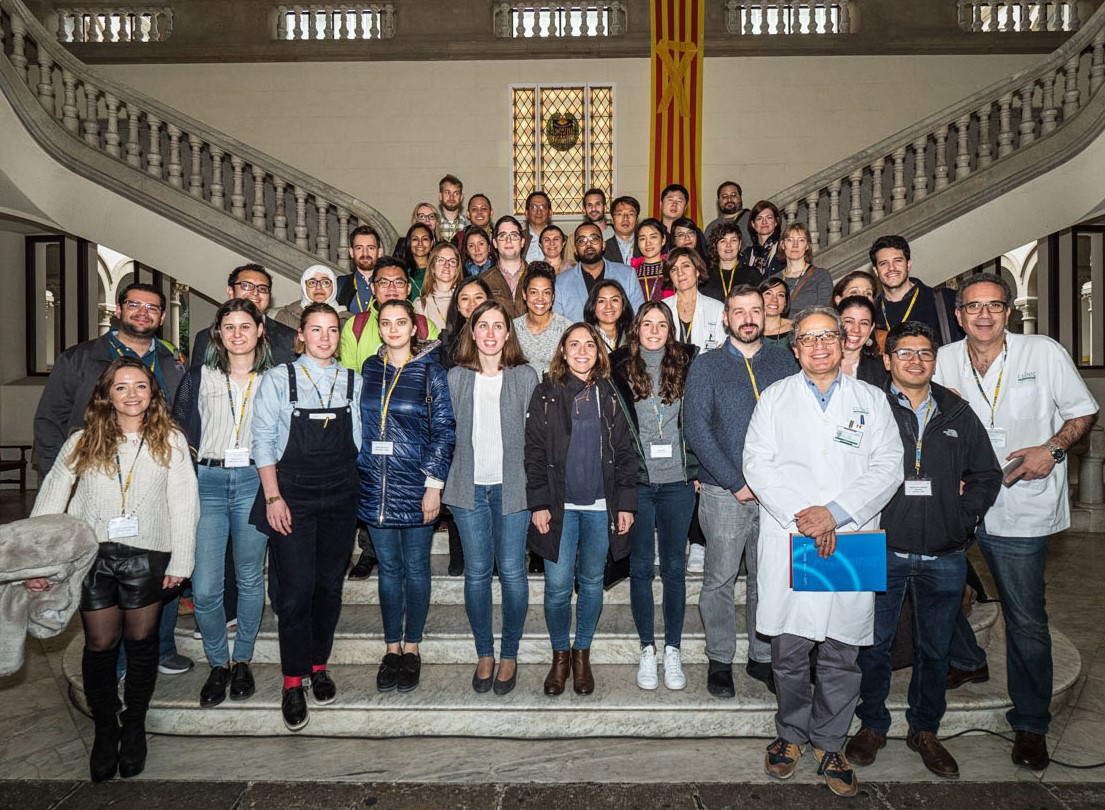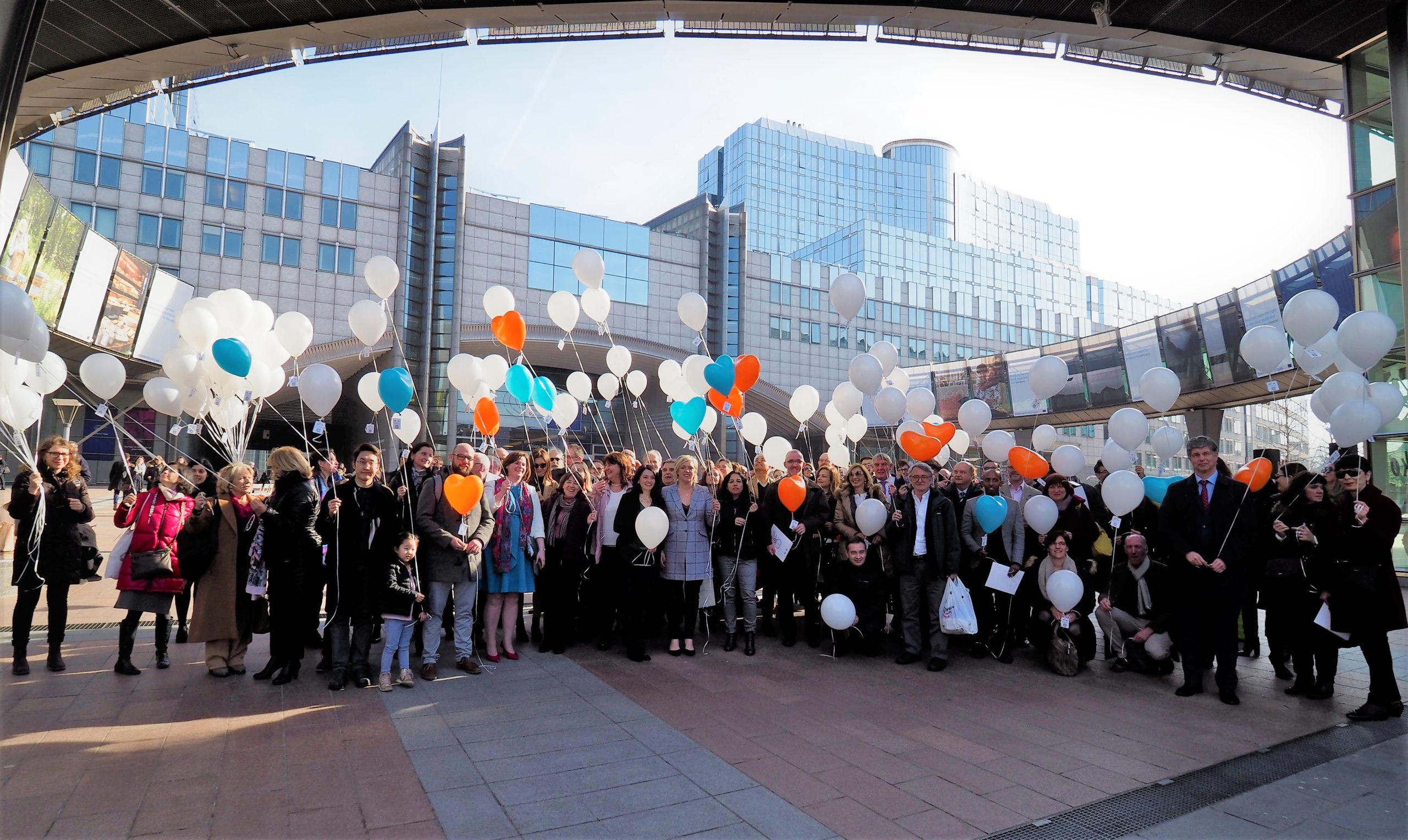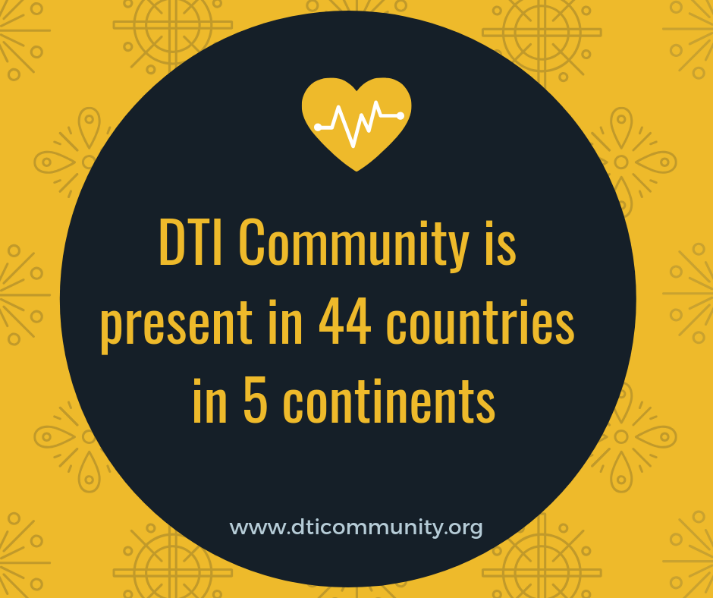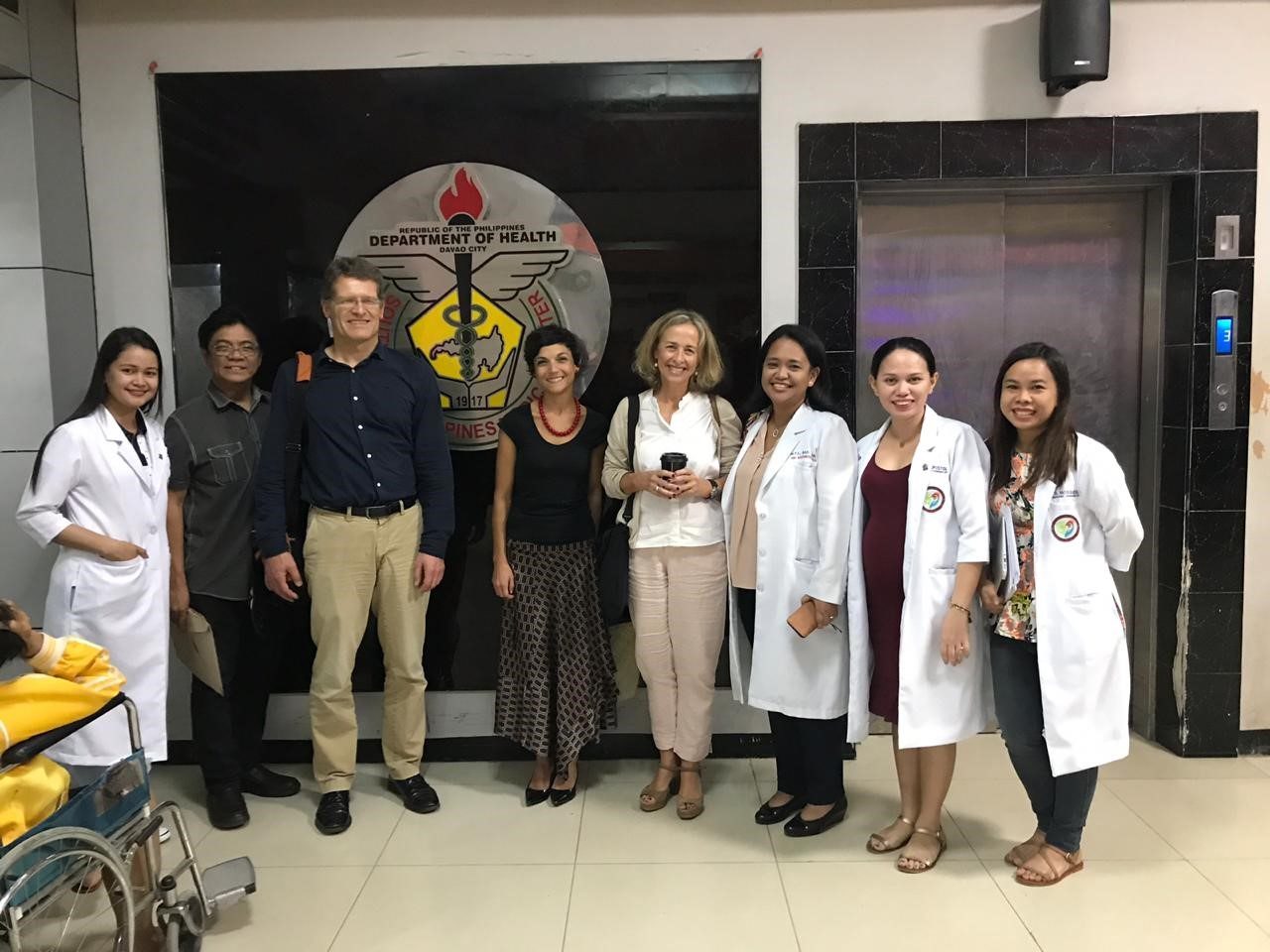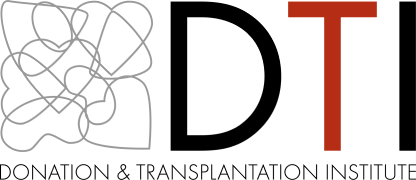Saving lives over the last 10 years in Trinidad & Tobago
The SEUSA program, supported by Fundación Repsol and coordinated by DTI Foundation, has led the actions to strengthening the organ donation and transplant system in the island. From June 19th to 21st, a team of DTI experts has visited the country to continue the establishment of the program.
The donation and transplantation program in Trinidad & Tobago started in 2006 under the umbrella of the National Organ Donor Program, competence of the Trinidadian Ministry of Health implemented by the National Transplant Unit (NOTU). But was only in 2010 thanks to the help of WHO and the Donation and Transplantation institute (DTI), that the Donation and Transplantation activity reached its best results. A total of 122 patients have received a renal transplant since 2010 in Trinidad and Tobago.
These achievements were made possible also thanks to the collaboration of Fundación Repsol; a Spanish foundation that promotes entrepreneurship, supports and collaborates with social, educational, and cultural organisations in the development of their projects.
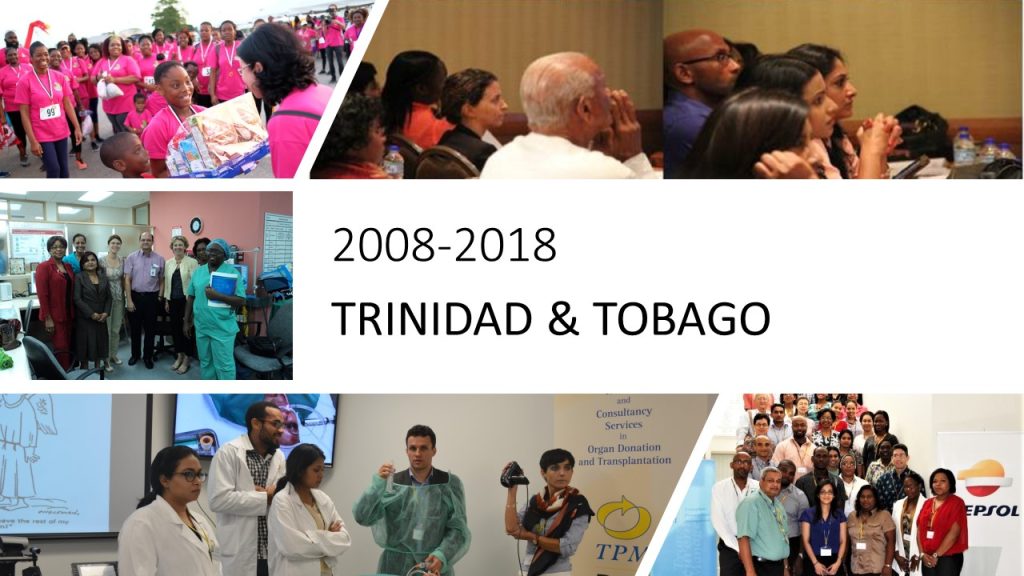
The project designed and implemented by DTI Foundation was based in the best organ donation practices from Spain, Europe and the United States; called SEUSA methodology.
Most of the SEUSA Trinidad and Tobago activities have been focussed on the:
- Design the structure and strengthening of the deceased donation program
As results, 238 potential donors have been detected. From these, 23 have become real donors. Out of 122 kidneys transplanted, 39 kidneys were from deceased donors.
- Education and Training: a total of 261 healthcare professionals have been trained in organ donation and transplantation as part of the project. Also, in 2017, an intensive care doctor graduated from the official Master in Donation and Transplantation of Organs, Cells, and Tissues, from the University of Barcelona, Spain.
SEUSA program
Thanks to the implementation of the SEUSA program, the engagement of the health professionals and the involvement of the health authorities the organ donation commitment in the country has increased significantly resulting in a rising donation rate.
The program was implemented in several phases. The initial step is a diagnosis study, aiming on identifying the organizational, structural and educational needs. After analysing the results and once identified, an action plan is formulated in order to foreseeing solutions. The next step is to improve the efficiency and effectiveness of the system by focusing on professionals’ involvement and management aspects. The third step is maximization of donor detection, by implementing the Deceased Alert System (DAS), an IT system that allows reporting potential brain-dead donors. All these actions need to be involved in a key cultural change within the healthcare professionals to nurture a positive attitude towards organ donation. The following step is auditing the hospitals to assure the accuracy and efficiency of the program’s implementation and its actions. The final step is analysing the program development to provide recommendations for improvement and professional training according to the local educational needs.
Despite the improvements and the progress that has been made, there are still some challenges left to overcome. The lack of a tissue donation program, the lack of physician’s engagement, the shortage of trained professional and a high family refusal rate are possibly the main ones.
June 2019 DTI expert visit
From June 19th to 21st, a team of DTI experts has visited Trinidad and Tobago to ensure the establishment of the program and to verify the progress made. Additionally, other CARICOM countries have been the focus of the DTI experts visit, extending the visit till June 26th. Guyana, Barbados and Jamaica hosted the team facilitating influential meetings with the key health care professionals and relevant authorities. The aim was to evaluate the possibility of regional involvement and as well as creating synergies for better practices in managing the end stage kidney disease.
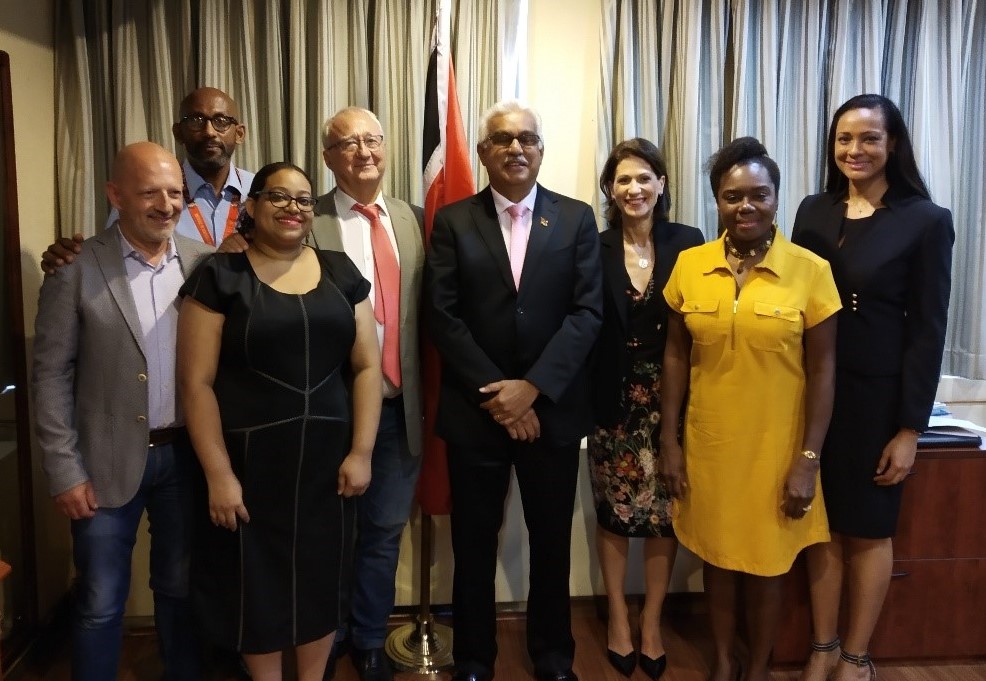
During the two-day visit to Trinidad and Tobago the DTI team had the opportunity to meet the Minister of Health Mr. Terrence Deyalsingh to discuss the new action plan for the deceased organ donation program. A visit to the NOTU and the Repsol Foundation office was also facilitated.
In Guyana a meeting with surgeons attending the 17th Annual Caribbean College of Surgeons Scientific Conference was facilitated. This was an excellent opportunity to establish synergies of cooperation in Donation and Transplantation field within CARICOM regions. The DTI team also met Mr Slater, CARICOM assistant secretary general to establish better communication pathways with the Caribbean region.
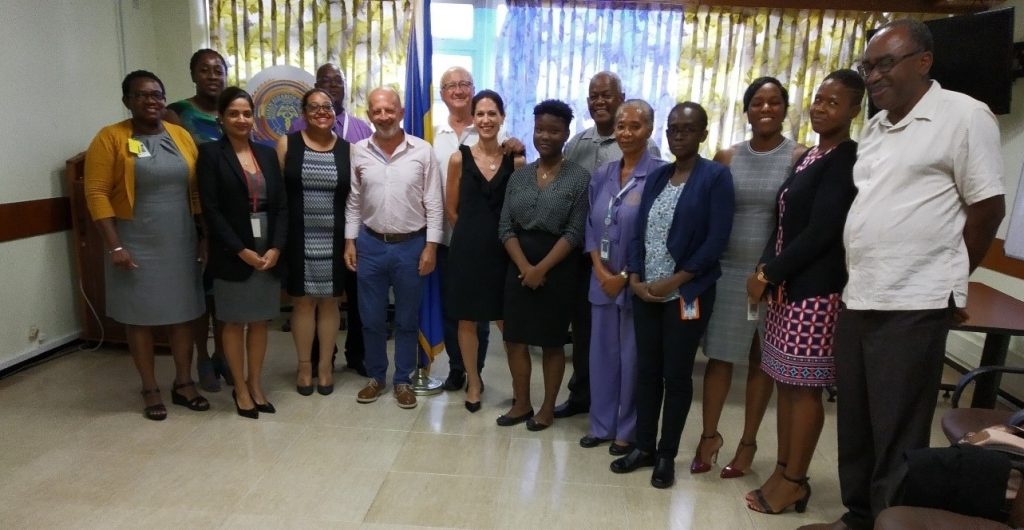
During the visit to Barbados, the team visited the Queen Elisabeth Hospital. The visit included a very dynamic meeting with the Hospital CMO, Dr Anthony Harris and the nephrology and surgical team where they all had the chance to define the challenges for the implementation of the deceased donation program.
During the Jamaica stay the team visited the West Indies University Hospital where they had the opportunity to attend a meeting organized by Dr Carl Bruce, CMO. The meeting was joined by many key stakeholders of the deceased donor program, representatives of the Minister of Health, the Hospital legal department, nursing department, surgery department and professors from the West Indies University. The Ambassador of Spain, His Excellency Mr Josep Maria Bosch Messa offered his support attending the meeting.
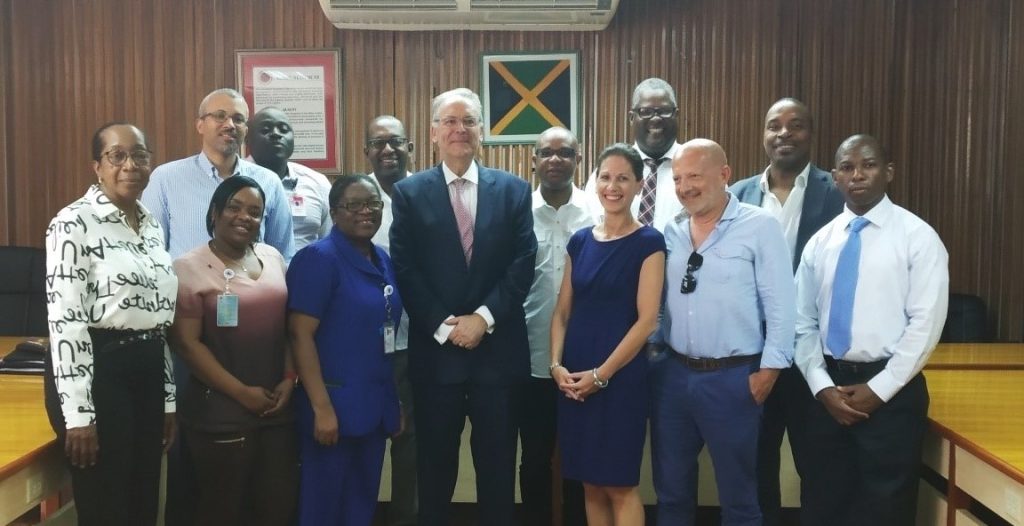
Overall the visit has made possible a more detailed assessment of the current situation in the CARICOM and also has facilitated the establishment of working networks and synergies among CARICOM region.
It is now clear that there are many challenges ahead, but the right action plans are in place to made deceased organ donation possible in a near future in the Caribbean region.
Master Closing Ceremony
The 15th edition of the International Master in Donation and Transplantation of Organs, Tissues and Cells (TPM-University of Barcelona) finished this May.
33 students from 13 different countries participated in the Master. Moreover, we have also trained 18 participants from 9 countries in the Master in Clinical Research (University of Barcelona), in the specialization of Donation and Transplantation of Organs, Tissues and Cells.
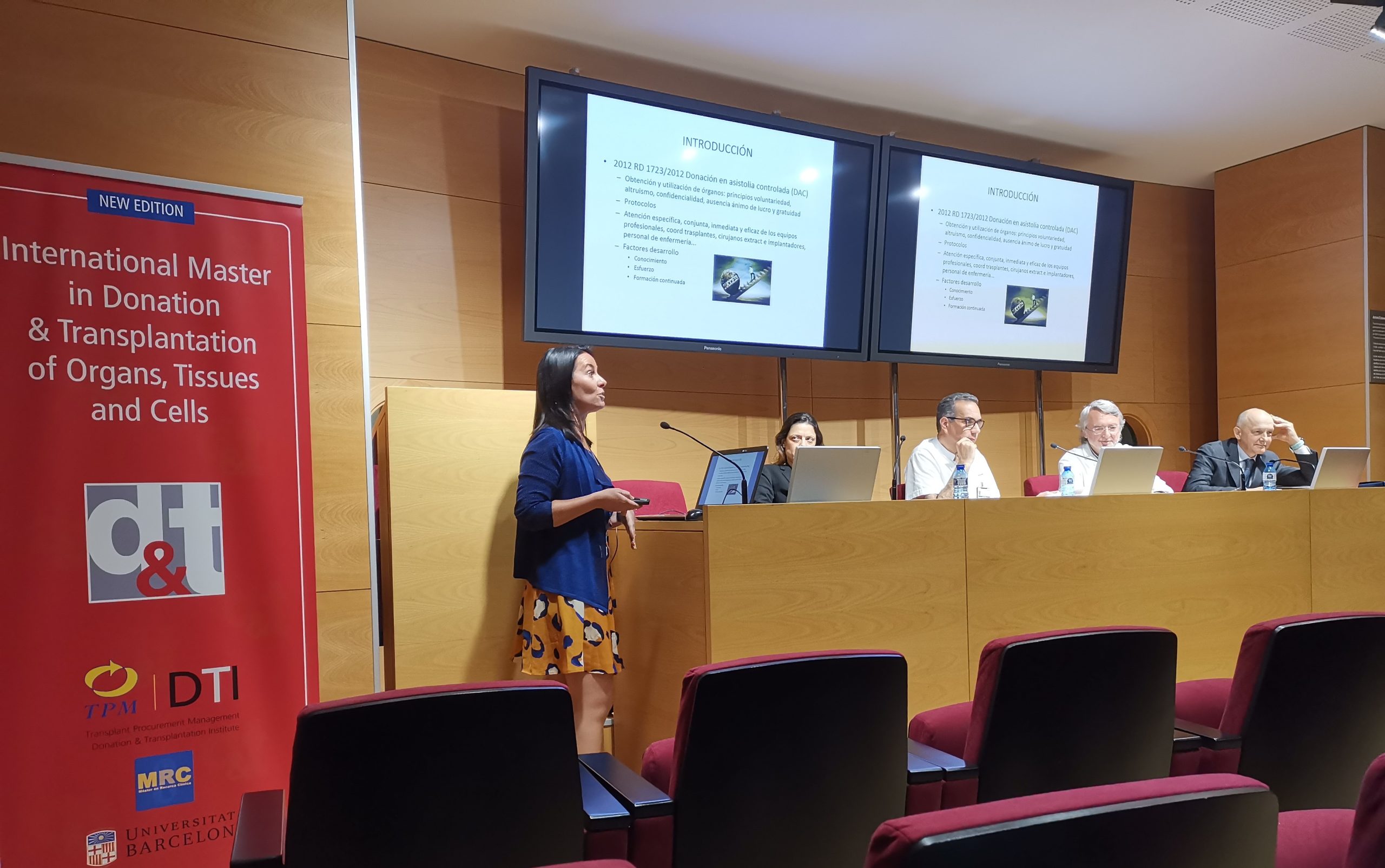
The participants have shown great commitment and effort in every stage of the donation and transplantation process along this academic year. During the entire training, they were guided by top experts from the most prestigious centers from around the world.
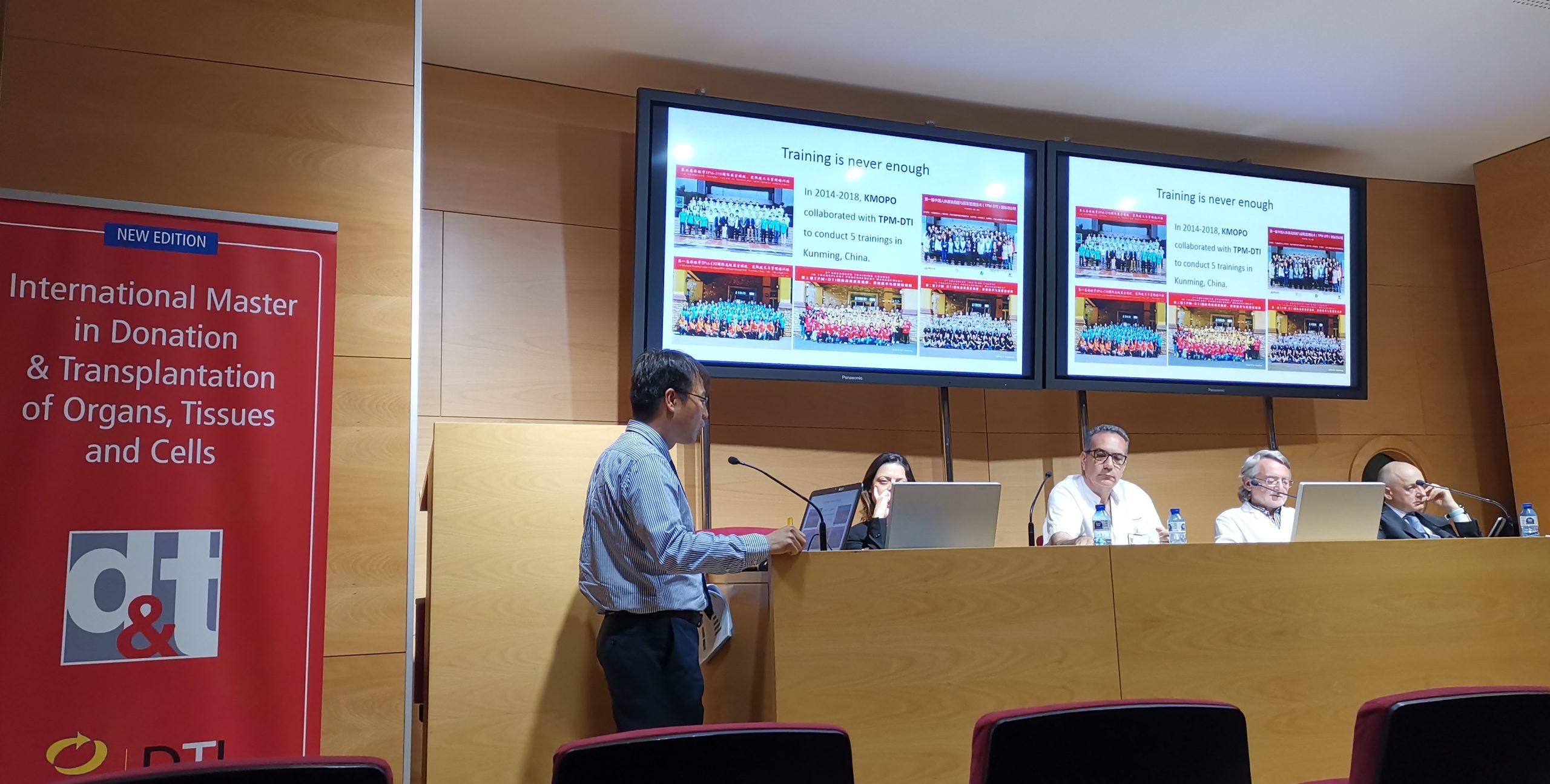
The Master Closing Ceremony was held on the 31st of May, at the Centre Esther Koplowitz, Fundació Clínic per a la Recerca Biomèdica, Barcelona.
The program included a video a presentation A 100 training courses in Italy by TPM by Dr. Jose Luis Escalante, pioneer in organ donation and transplantation in Spain and currently director of the Transplantation Program at the University General Hospital Gregorio Marañón, Madrid. Dr. Escalante talked about the successful implementation of TPM training in Italy in the past 22 years.
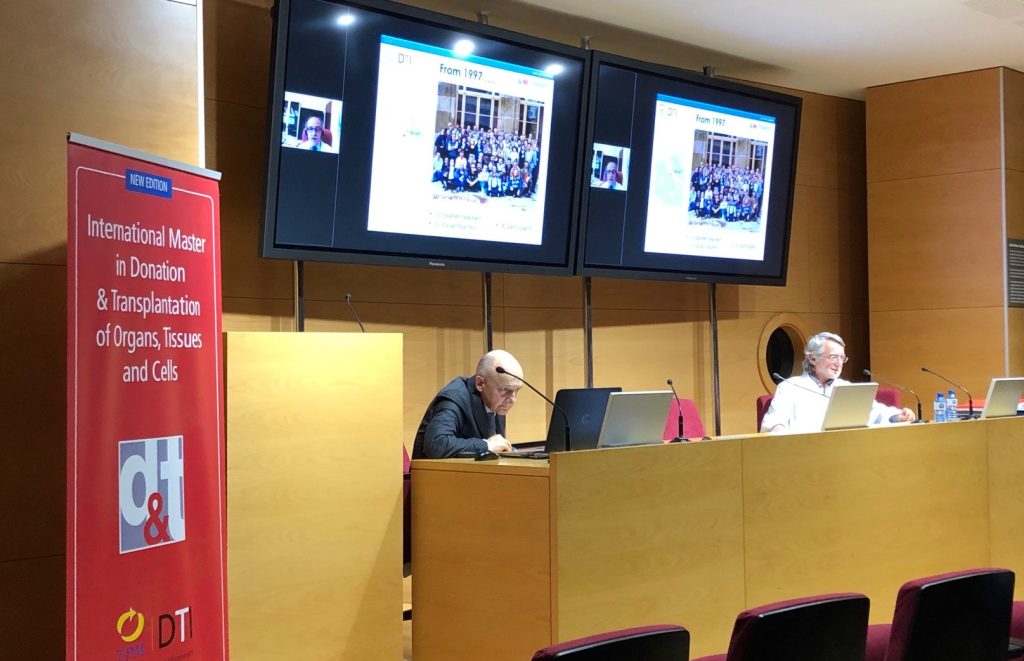
The event counted with the participation of a special guest, Dr. Alessandro Nanni Costa, former president of the Italian National Transplant Center (Centro Nacionale Trapianti) who talked about Organ Donation and Transplantation in Italy in the past 20 years. 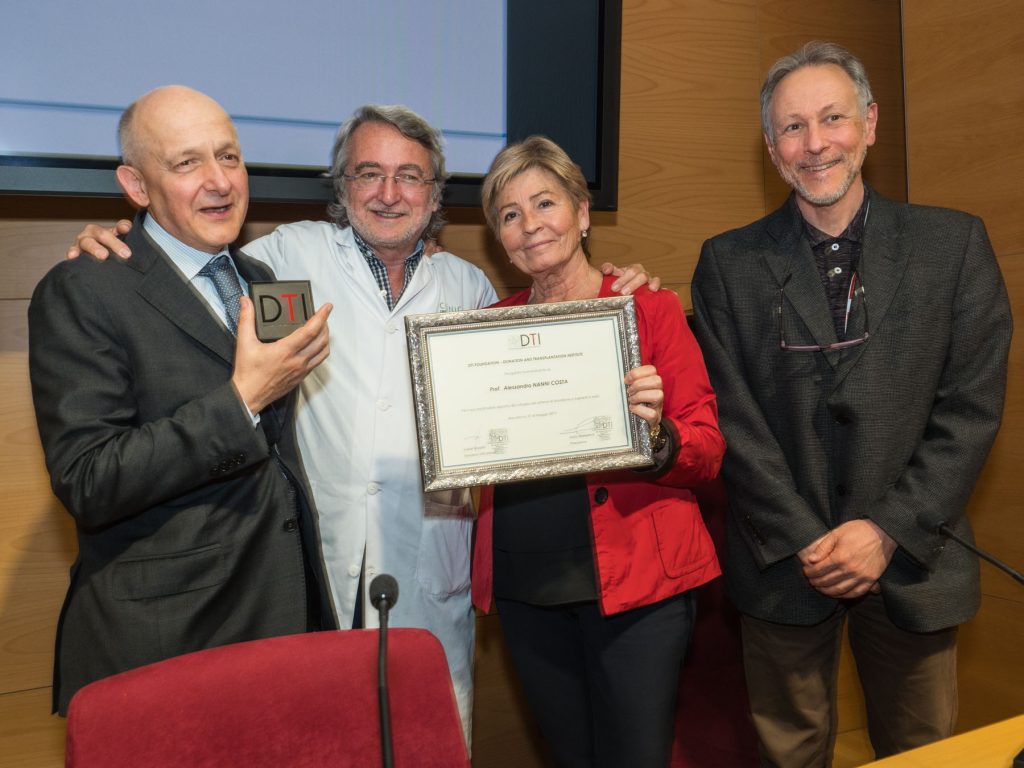
Dr. Nanni Costa was awarded a honorary DTI plaque for his contribution to the development of organ donation and transplantation in Italy.
We hope that the new edition of the Master, starting in October 2019, will be as successful as this one!
Registration is now open for the 16th edition!
1st TPM course in Kerala State, India
2171 persons are on the waiting list for organ transplantation in Kerala State, India. The detection of potential donors is key factor to activate the process and this is one of the main reasons for the Government to implement a new position of Transplant Coordinator in every hospital in the state. As always training is the first step to be taken therefore, it was proposed that a course in Transplant Procurement Management would be a good way to start with it.
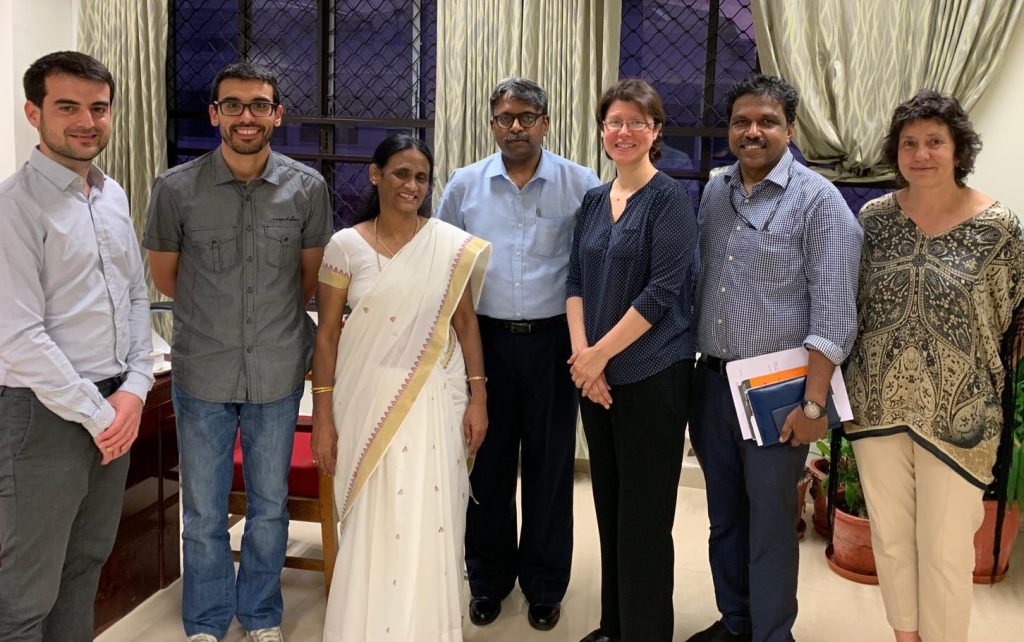
The 1st Intermediate TPM course in Trivandrum (India) took place from 28th to 30th May. 50 professionals (Neurologist and Anaesthesists mainly) from all over the State of Kerala were trained to determine brain death and obtain consent from relatives for organ transplantation among other topics of the Transplant Coordination process.
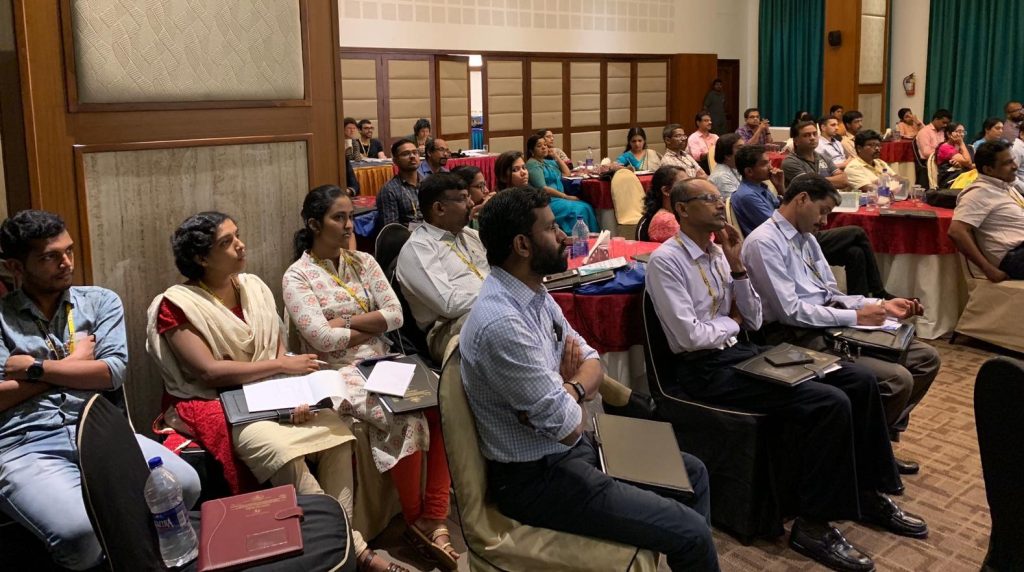
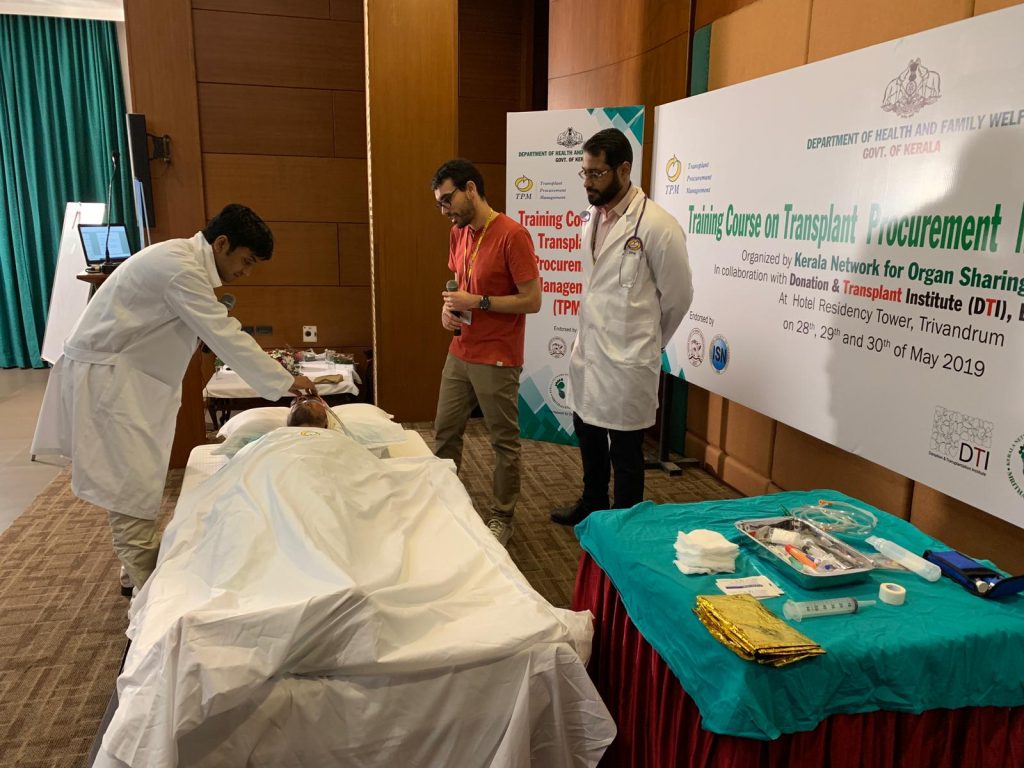
We are grateful to the Ministry of Health Smt. K. K Shailaja Teacher for her kind presentation of the course; to Sri. Rajeev Sadanandan, Chief Secretary and to Dr. Noble Gracious, Nodal Officer (KNOS) for inviting us to share our experience and knowledge with this big group that hopefully will help to increase the donation rates in Kerala.
Also, thanks to all the local team and to the Spanish experts for their commitment and for making this awesome course possible.
DTI Community campaigns to sponsor training in organ donation
DTI Community is a worldwide community of ambassadors, alumni, friends and volunteers engaged to increase awareness and volunteer and philanthropic commitment to Donation and Transplantation Institute (DTI).
More than 15.000 TPM alumni from all five continents have enrolled in the Transplant Procurement Management courses that DTI offers. DTI Community promotes equality of access and opportunity for organ donation and transplantation. We are committed to bring the best practices in this field to under-resourced countries, because we believe that together we are stronger. For this purpose last year we created a crowdfunding campaign called “Save 1 million lives”.
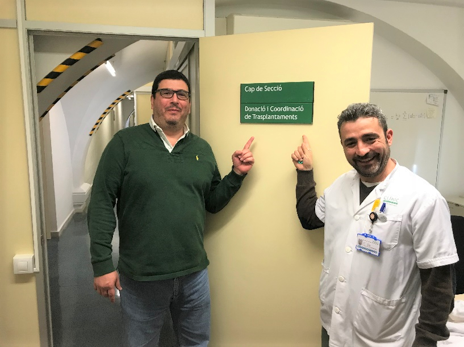
So far, two students have been granted with a scholarship that allowed them to come to Barcelona to be trained at the TPM Advanced Courses (Spanish and English) and in an internship at the Transplant Coordination offices in Hospital Clinic and Hospital Bellvitge. Dr. Oeding, from Barranquilla, Colombia, is an Intensive Care doctor and has already planned out a strategy alongside transplants coordinators from the region to start implementing the best practices in organ donation and transplantation. Dr. Panche, from Goa, India, has been named Regional Transplant Coordinator short after graduating from the TPM course. 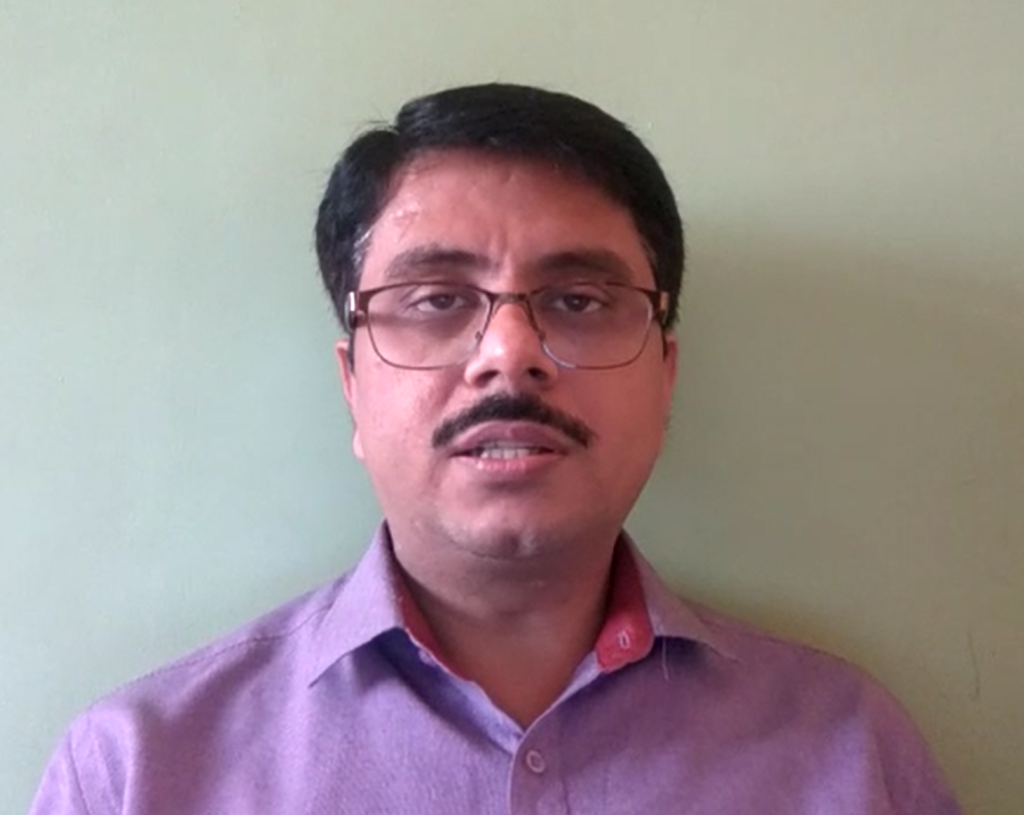
You can help us to fund more scholarships through our project on Global Giving. Thanks to your contribution we can achieve great changes in those countries that need to develope a new system or to improve the existing one. You could benefit by contacting info@dticommunity.org.
Every single donation helps towards the goal of saving lives!
ODISSeA Train the Trainers Face-to-face course in Barcelona
From May 13th-17th, 2019, took place the ODISSeA Train the Trainers Face-to-face course. During the week, 30 healthcare professionals from Malaysia, Myanmar and Philippines attended the course, in order to improve their knowledge on the organ donation process, as well as to learn how to transfer this knowledge and competences to the future participants of the Postgraduate Program in Organ Donation 2019-2020.
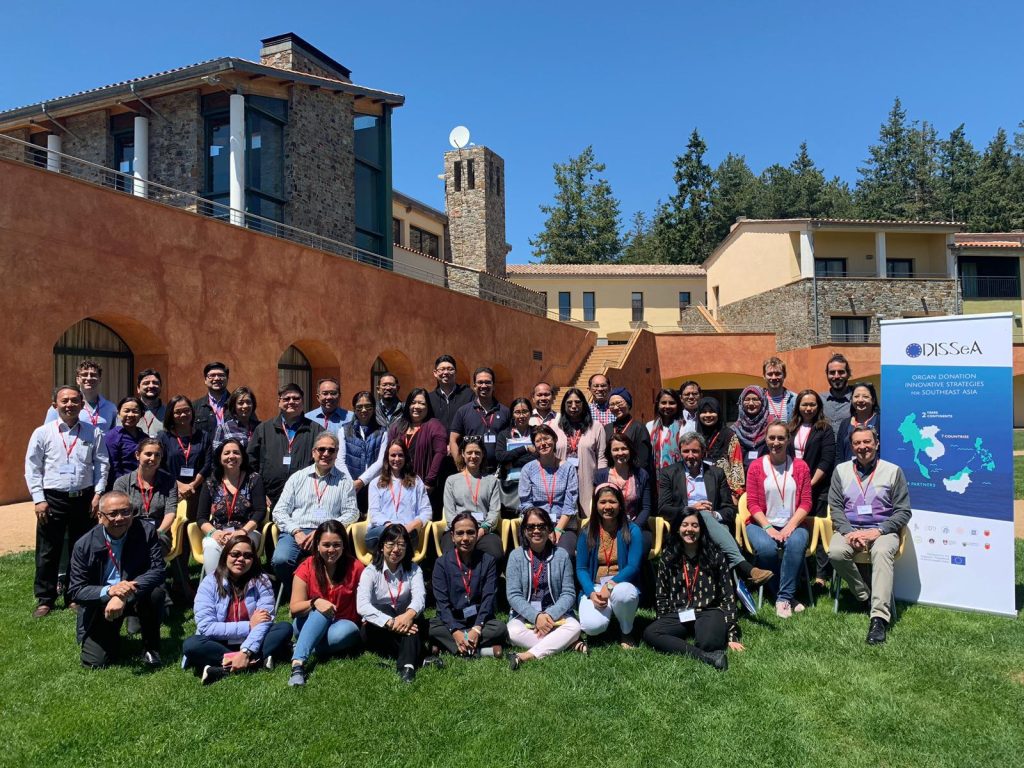
The “Train the Trainers” is a blended training program, including an online tutored course from April 1st to June 2nd, and a face-to-face modality. The aim of this phase is to prepare the 5 professionals from each Southeast Asian (SeA) university who will be responsible for implementing the Postgraduate Program in their institutions. Upon their return, they will become the faculty to a total of 280 students that will enroll the Postgraduate Program in the next few months.
The Train the Trainers faculty team in organ donation has been composed by experts in organ donation and education from University of Barcelona, University of Bologna, University of Zagreb and DTI Foundation. The face-to-face course was based on active and engaging workshops and exercises, ensuring their commitment to the project, and preparation for their role as faculty.
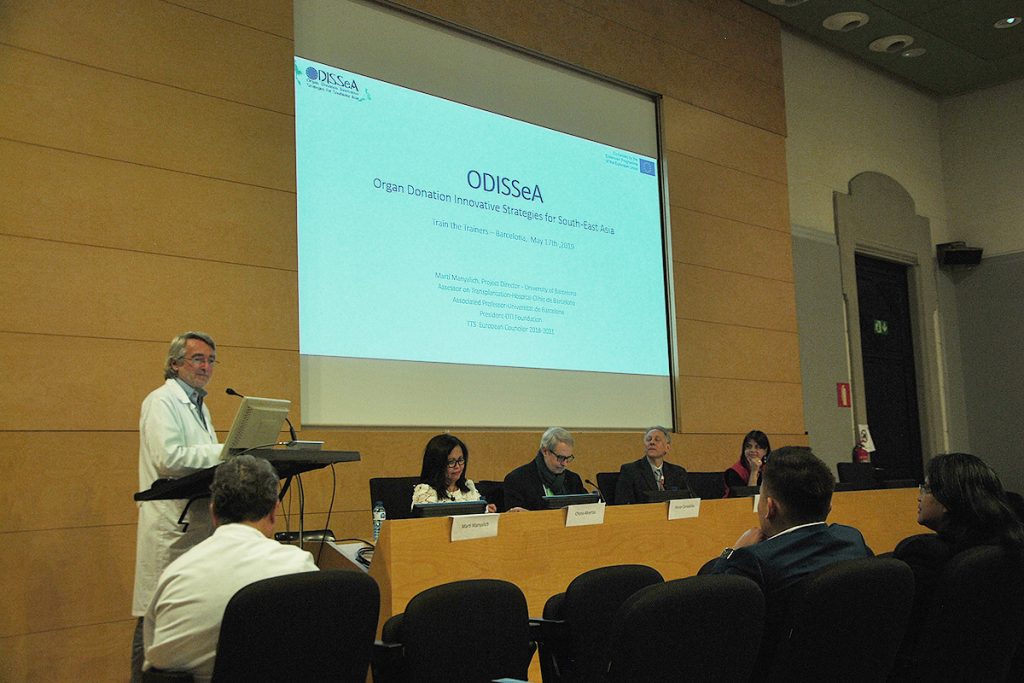
On May 17th, the participants visited Hospital Clínic of Barcelona, where they met the professionals involved in the organ donation process from ICU, ER, Transplant Coordination and Tissue-typing lab. Following the visit, professionals from the transplant coordination unit, kidney transplant program, tissue-typing labs and a transplant recipient also shared their experience and expertise with the participants.
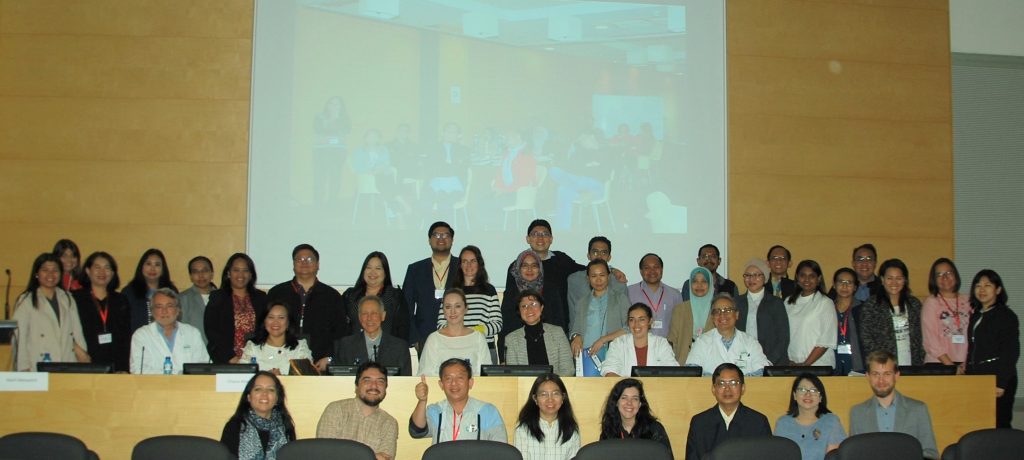
EU co-funded project ODISSeA starts its journey in Philippines
- The project unites 8 Southeast Asian universities and 6 European institutions
- The goal is to train a total of 320 healthcare professionals in the field of organ donation
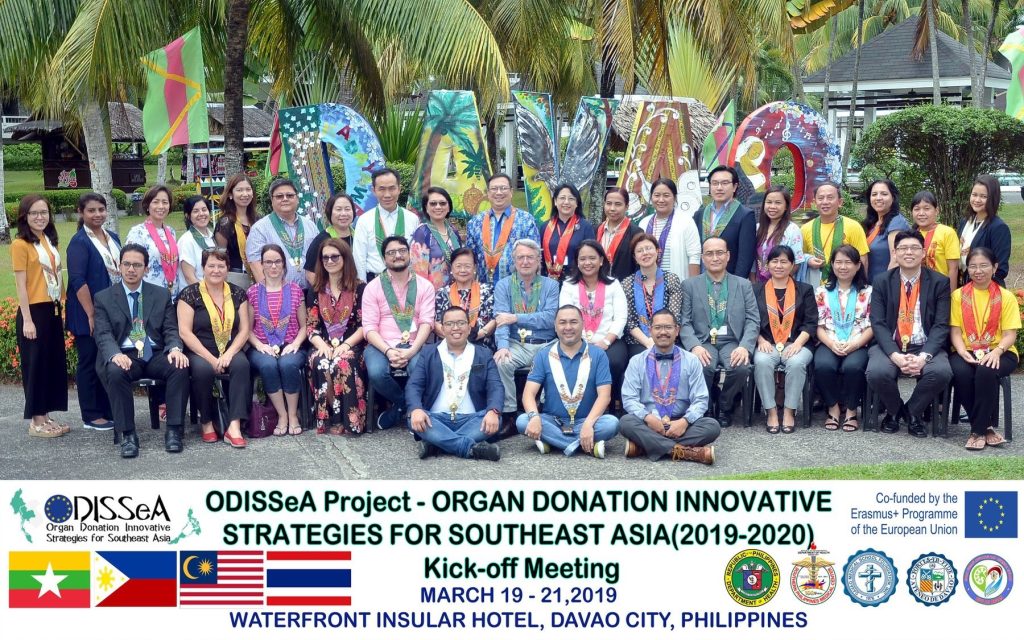
From March 19th-21st, representatives of the University of Barcelona, the University of Zagreb School of Medicine, Dinamia S. Coop and DTI Foundation (Donation and Transplantation Institute) visited Ateneo de Davao University, Philippines for the Kick-off meeting of ODISSeA Project. The main objectives, phases and actions were presented and discussed in workgroups during these three days.
The project is originated from the need for a formal training program to train specialized healthcare professionals that will efficiently coordinate the process of organ donation in 4 Southeast Asian countries.
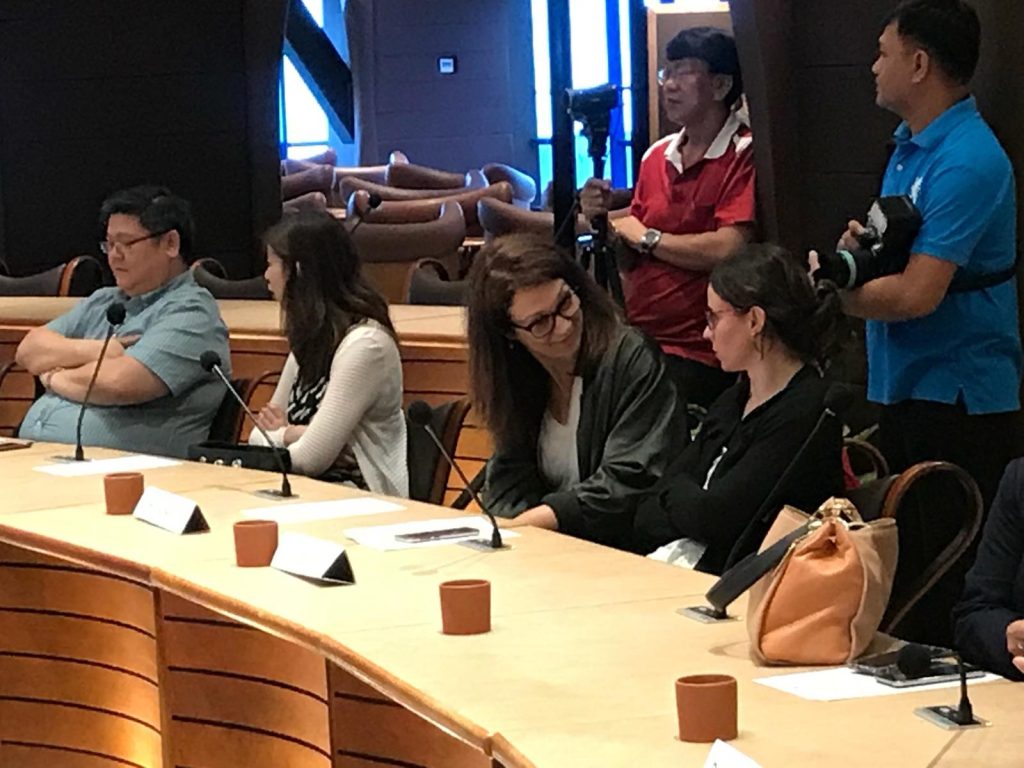
For two months, a team of 40 healthcare professionals from Malaysia, Myanmar, Philippines and Thailand, will enrol in a trainer for trainers’ course to learn how transfer the knowledge, competences and attitude needed in organ donation. This blended training program will consist of an online and a face-to-face course to be held in Barcelona in May.
Once accomplished, they will teach as faculty to the Postgraduate students of these 8 universities so that they will be able to effectively develop organ donation in their daily activities, in their local hospitals in Southeast Asia.
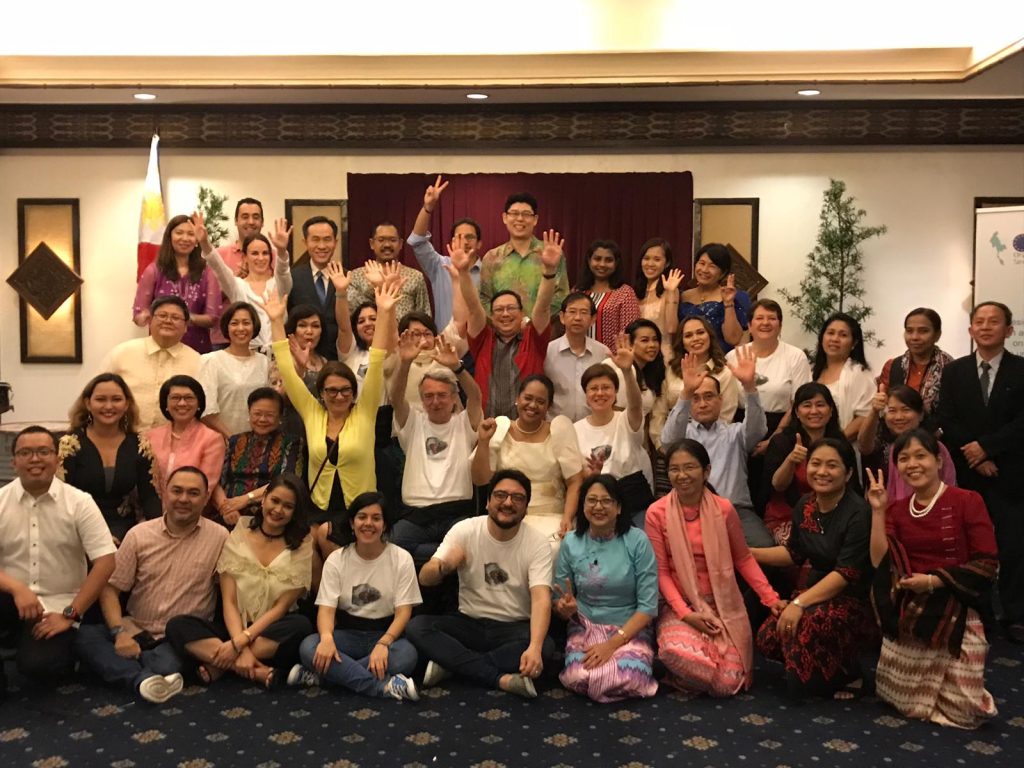
Southeast Asia: a growing need with non-growing solutions
Asia is the most populated continent in the world. Conversely, the region has the lowest rate of organ donation and transplantation and the fastest growing rate of people entering chronic and end-stage organ failure, according to a study published by Frontiers in Medicine. Also, the evolution of dietary and environmental triggers has made the waiting list grow, while the number of available donors has remained unchanged. Consequently, there is a significant and concerning lack of organs available for those patients needing a transplant.
According to the same study, despite the current situation, there is hope for the future. Treated end-stage renal diseases have increased noticeably from year 2000 to 2013 in three of the countries involved in ODISSeA: Thailand (1210%), Philippines (185%) and Malaysia (176%). However, the numbers are still low and insufficient to meet the needs. Thailand comes ahead with 4,27 donors per million of population (pmp), Malaysia has 1,10 pmp and the Philippines 0,45pmp.
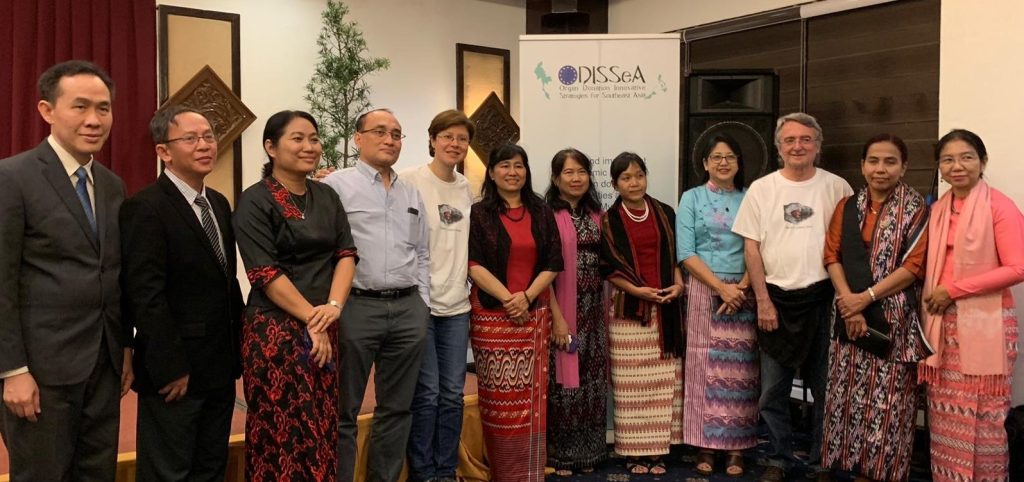
Thanks to initiatives like ODISSeA project, this scenario is bound to change. Through this project, faculty members and healthcare professionals from Philippines, Thailand, Malaysia, and Myanmar will learn and acquire the necessary knowledge and skills about the most effective donation system. After the project is implemented, a total of 320 doctors will be prepared and qualified to save lives.
Related links:
https://www.ncbi.nlm.nih.gov/pmc/articles/PMC5481314/
March face to face sessions of the International Master in Donation and Transplantation at the University of Barcelona
From 4th to the 15th of March, three courses were held in the Faculty of Medicine and Health Sciences of the University of Barcelona: Leadership, Quality and Management in Organ Procurement & Transplantation (March 4-6), with 29 participants from 10 different countries, Organ Procurement (March 6-8) with 30 participants and Organ Transplantation (March 11-15) with 37 participants from 18 countries each.
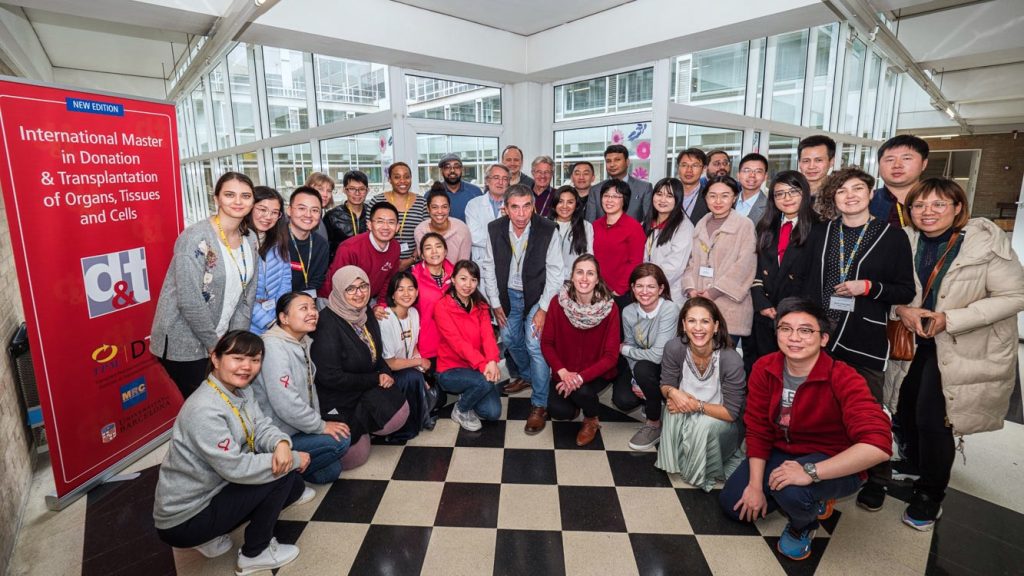
This is the first part of the face to face training of the International Master in Donation and Transplantation of Organs, Tissues and Cells (University of Barcelona & Transplant Procurement Management) and the Master in Clinical Investigation, Specialty in Donation and Transplantation of Organs, Tissues and Cells (University of Barcelona). The second part (Tissue Banking & Advanced Therapies) will be from 27th to 30th May at the same location.
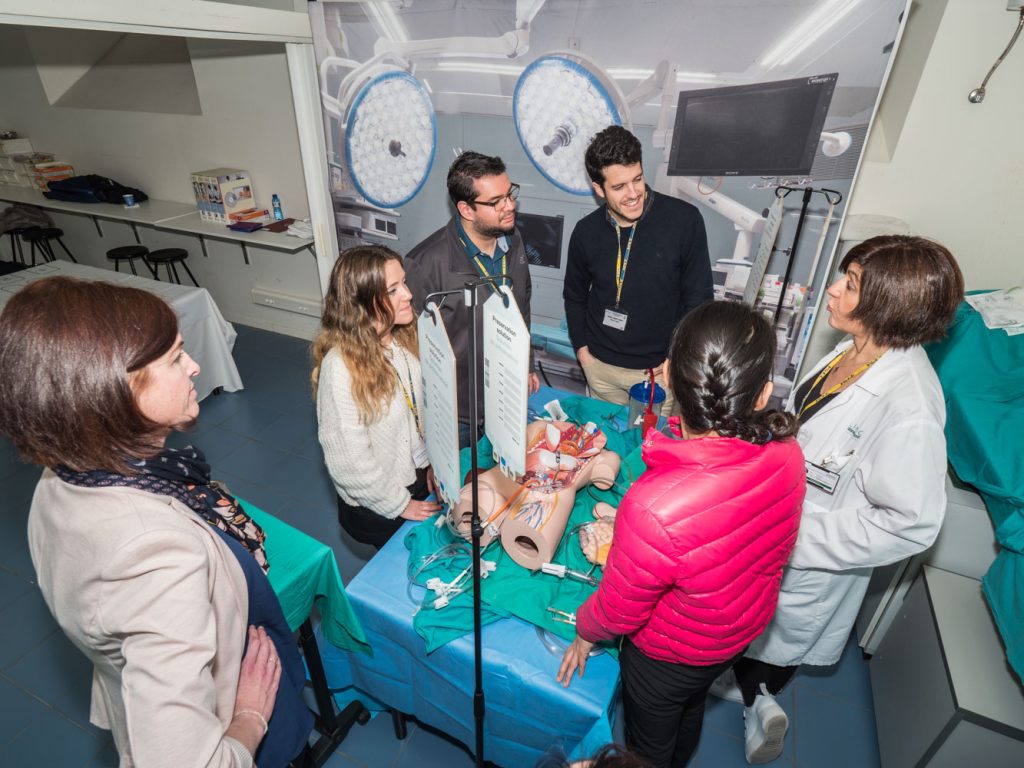
Apart from the Master participants, the courses were also attended by postgraduate students and free-lancers from Singapore, Pakistan, United Kingdom and Trinidad & Tobago. Throughout the training they were guided by the faculty staff which included top experts from the field.
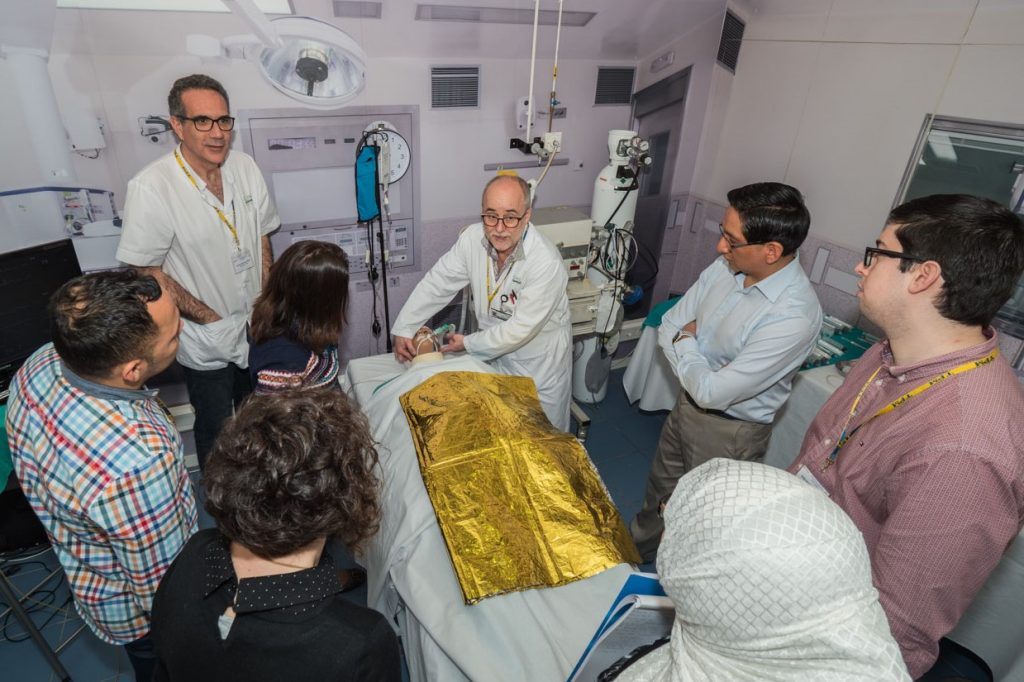
When it comes to the number of participants, we are proud to say that this edition was even more successful that the last one, with a 45% increase in participation in Leadership, Quality and Management in Organ Procurement & Transplantation, 36% in Organ Procurement and 85% in Organ Transplantation. The number of different nationalities also rose from 17 to 21, compared to last year.
The courses included theoretical sessions and workshops where the participants could put into practice the knowledge acquired in the previous online training that took place between October 2018 and March 2019.
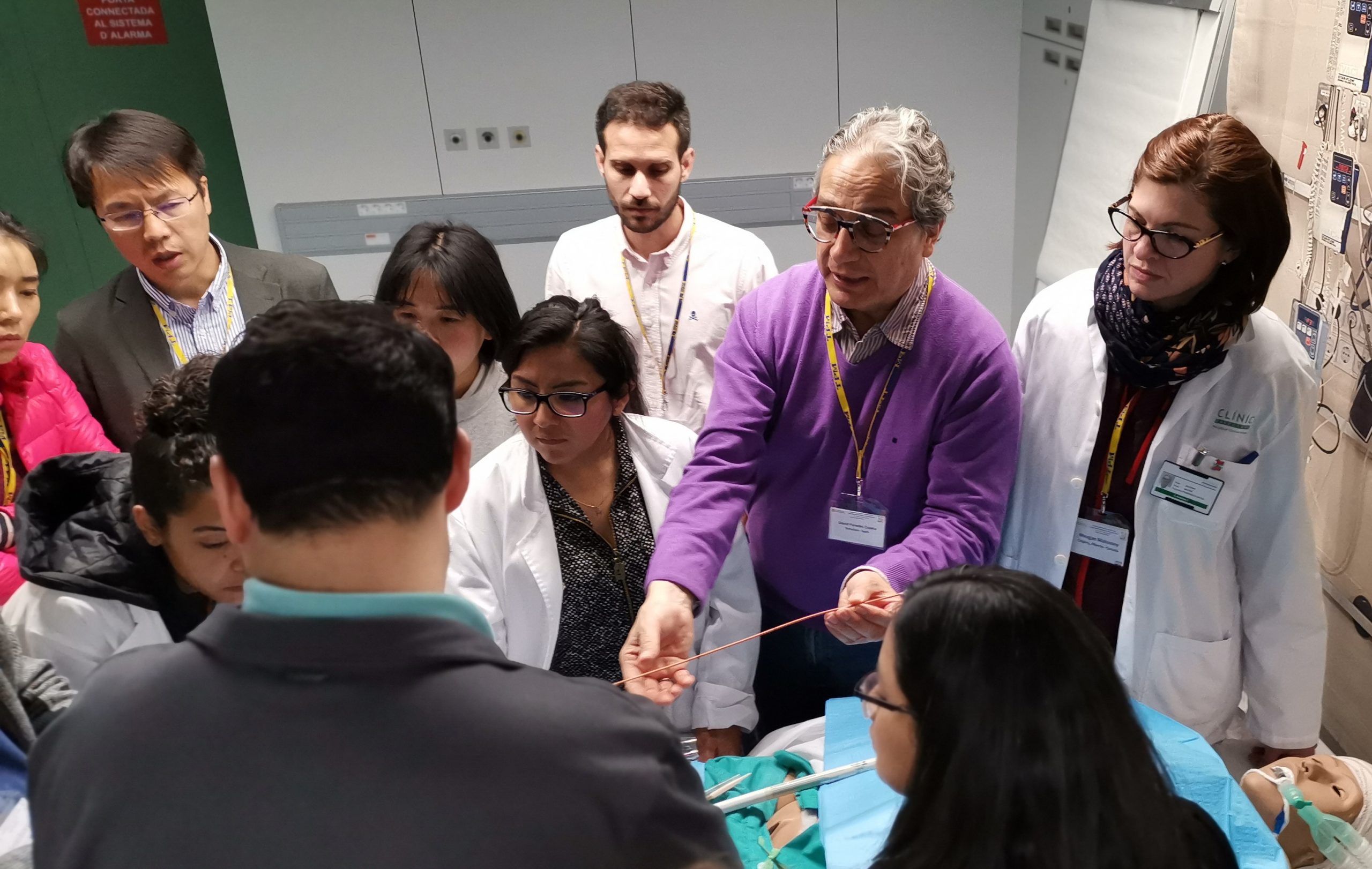
Once again, we offered a high-quality training program that brings together knowledge, skills and best practices in the field of organ donation and transplantation.
International Master in Donation and Transplantation of Organs, Tissues and Cells
EUROPEAN PARLIAMENT OPEN ITS DOORS TO EUDONORGAN AWARENESS EVENT
"Why Organ Donation Matters to Us All"
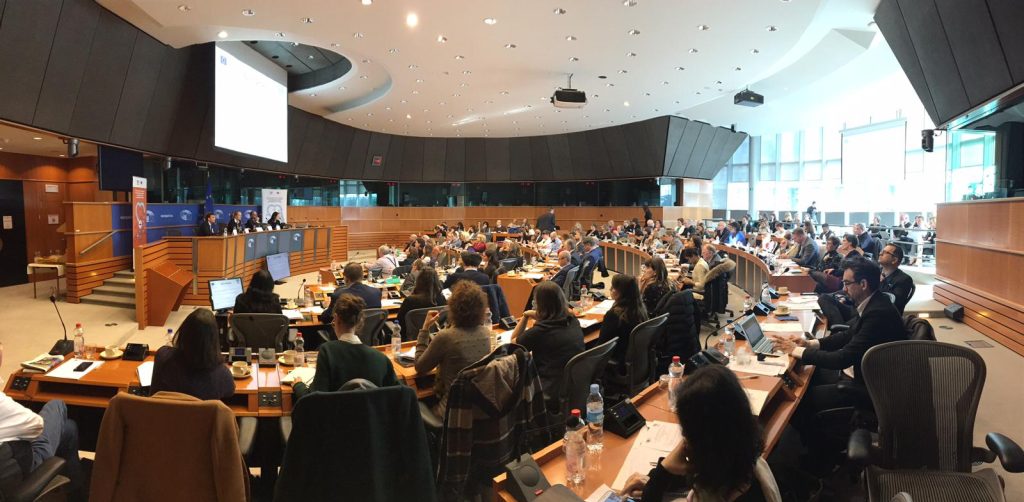
The third social awareness event organized within the Eudonorgan project was officially opened at European Parliament on February 18th. The event was attended by 120 healthcare professionals and other relevant stakeholders coming from 33 countries.
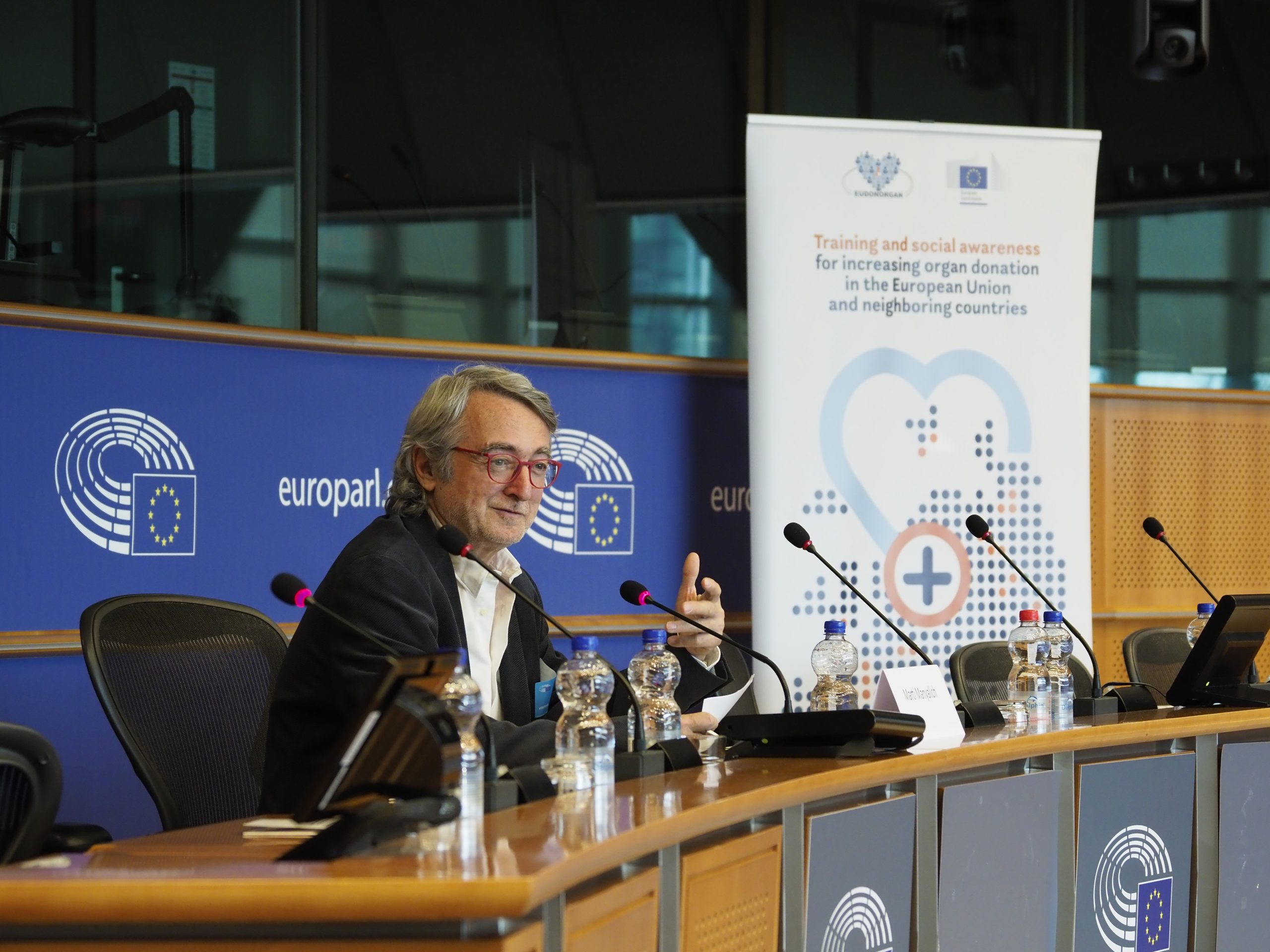
Dr. Martí Manyalich (Eudonorgan Project Director, President of DTI) announced that «the project has trained and reached through social awareness actions 400-500 participants all over Europe». Also, Efstratios Chatzixiros, on behalf of Jose R. Nuñez (Adviser on Medical Products of Human Origin Service Delivery and Safety of the WHO), encouraged Eudonorgan project since it should be a common responsibility for all stakeholders, the health authorities, professionals, patient associations, media, etc. to join forces» for organ donation promotion.
Furthermore, Stefaan Van Der Spiegel (Head of Sector, Substances of Human Origin, Unit B4, DG SANTE, European Commission) reminded that « The Commission has learned through the Action Plan the importance of a bottom-up approach to set the agenda by engaging professionals, administrations, politicians and the public opinion».
Luc Colenbie (Expert DG Health Care, Organs, Embryo’s and Bio-Ethics, the Ministry of Health, Belgium), co-promoter of this event, stated that «due to the efforts of the Federal Government and the support of the legislation brought into force in 1986, Belgium is at the European summit on organ donation and transplantation. The government's objectives are to increase the donor potential, to ensure the quality and safety of recovered organs and to provide an optimal allocation of all available organs».
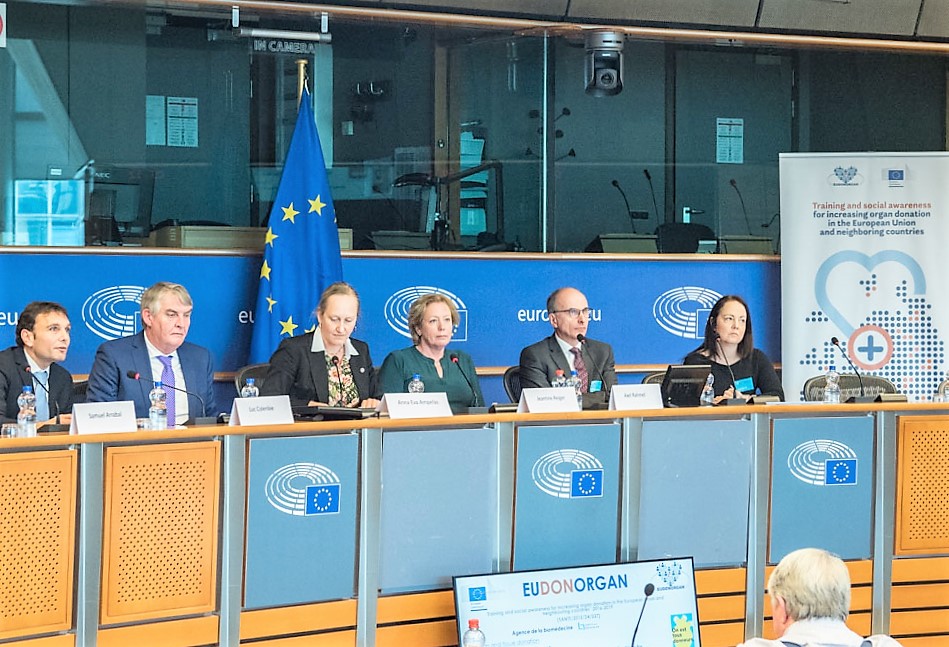
Pisana Ferrari (lung recipient and strong supporter of organ donation, Member of the Board of the Italian Pulmonary Hypertension Association) endorsed Eudonorgan activity and expressed her «pleasure to be able to offer our support in identifying patients to take part in it. We saw this as a unique opportunity for some of our pulmonary hypertension patients to learn specialized skills that they could take back to their countries to improve the situation there».
At the end of the event, all participants joined the esplanade of the European Parliament for a commemorative act consisting in a launch of biodegradable balloons dedicated to organ donors and the visit to the BELDONOR truck. See the video here!!
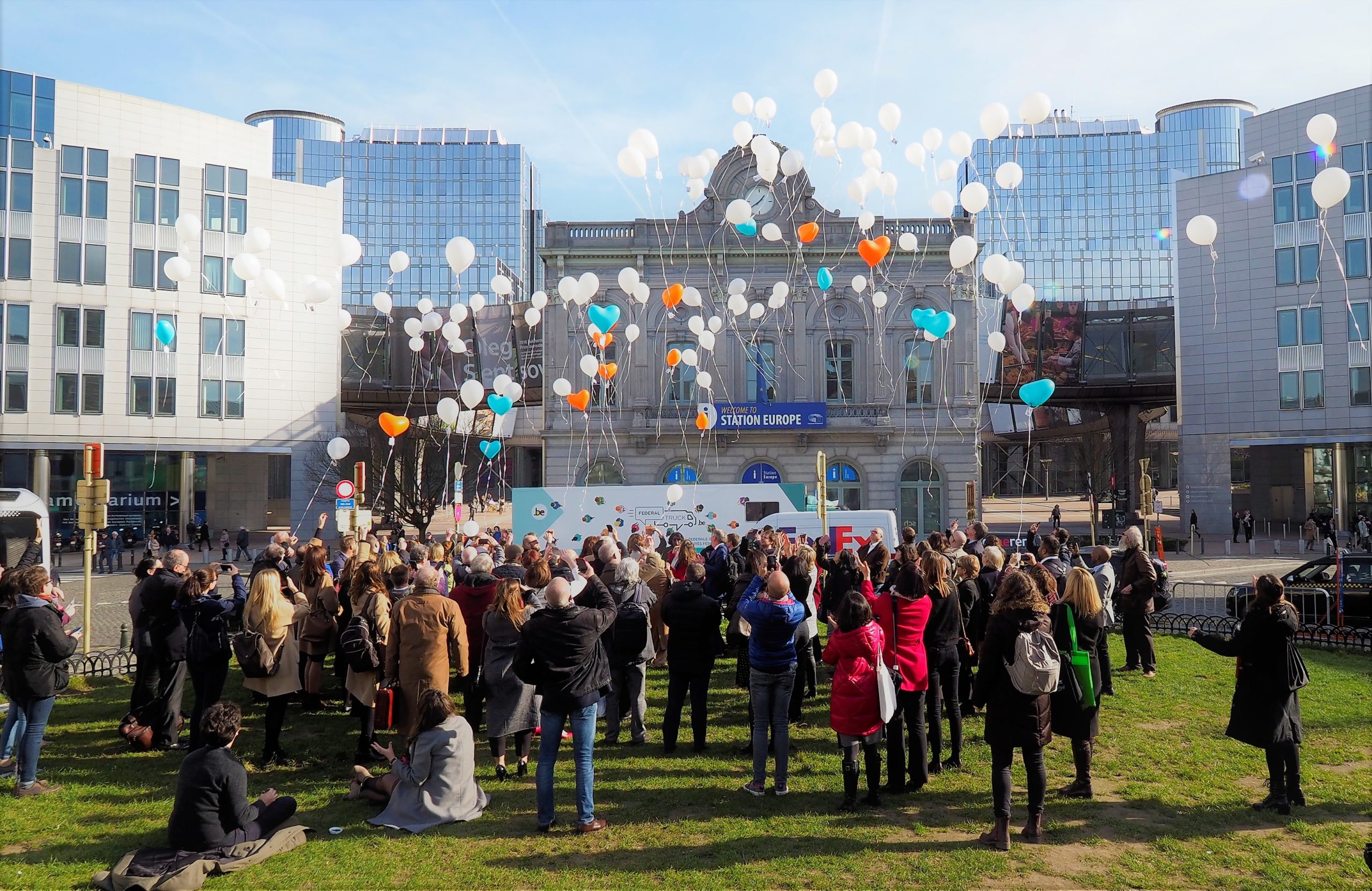
Eudonorgan is a service contract awarded by the European Commission on the initiative of the European Parliament. It is implanted by an international consortium, including University of Barcelona (Spain) as project leader, DTI Foundation - Donation and Transplantation Institute (Spain), Institute for transplantation of Organs and Tissues (Slovenia), Institute for Transplantation and Biomedicine, Ministry of Health (Republic of Croatia), Italian National Transplant Centre (Italy), Dinamia Consultoría Social (Spain).
Eudonorgan mainly aims at enhancing the positive attitude towards organ and tissue donation, and ultimately improving donation rates in the European Union and neighboring countries.
DTI COMMUNITY REPORT
As you may know DTI Community is an international group that aims to connect people interested in organ donation and transplantation. It’s a place where you can share ideas, gain knowledge and build personal and professional connections with people from all over the world
The Community has collaborated in 11 events, 9 online academic webinars, and two face-to-face events during 2018. The first event was its official presentation in May as part of the 10th anniversary of the DTI Foundation. The second was the TPM family breakfast organized in Mexico in the framework of the first intermediate TPM course held in October.
Thanks to all these actions, today the DTI Community is present in 44 countries in 5 continents.

Additionally, DTI Community has incorporated new services:
- An academic library where you can find guides and official documents on donation and transplantation of organs, tissues and cells in Spain, Europe and internationally. All recorded webinars are also available for those who could not attend on the day of the presentation.
- The Inbox mail is helping our members to build their network. It is a tool to directly communicate with other DTI Community members around the world.
- The Facebook group of the community is a space to share experiences and discuss the current news of the donation and transplantation sector. It also keeps members informed of all the new features of the platform.
Ultimately, the DTI community has grown during 2018 and hopes to continue doing so in 2019. If you want to join, you can do it at https://www.dticommunity.org/
ISN – TTS partnership
Since 2016 the South Philippines Medical Center (SPMSC) got into engagement with the University of Barcelona (UB), Hospital Clinic of Barcelona (HCB) and DTI foundation in the ISN-TTS Sister Transplant Centers Program; a joint partnership set up between ISN and The Transplantation Society (TTS) to develop existing Kidney Transplant programs in emerging countries. The objective is to maximize the odds of prompt donor identification, referral and management to lead in efficient organ retrieval and successful transplantation.
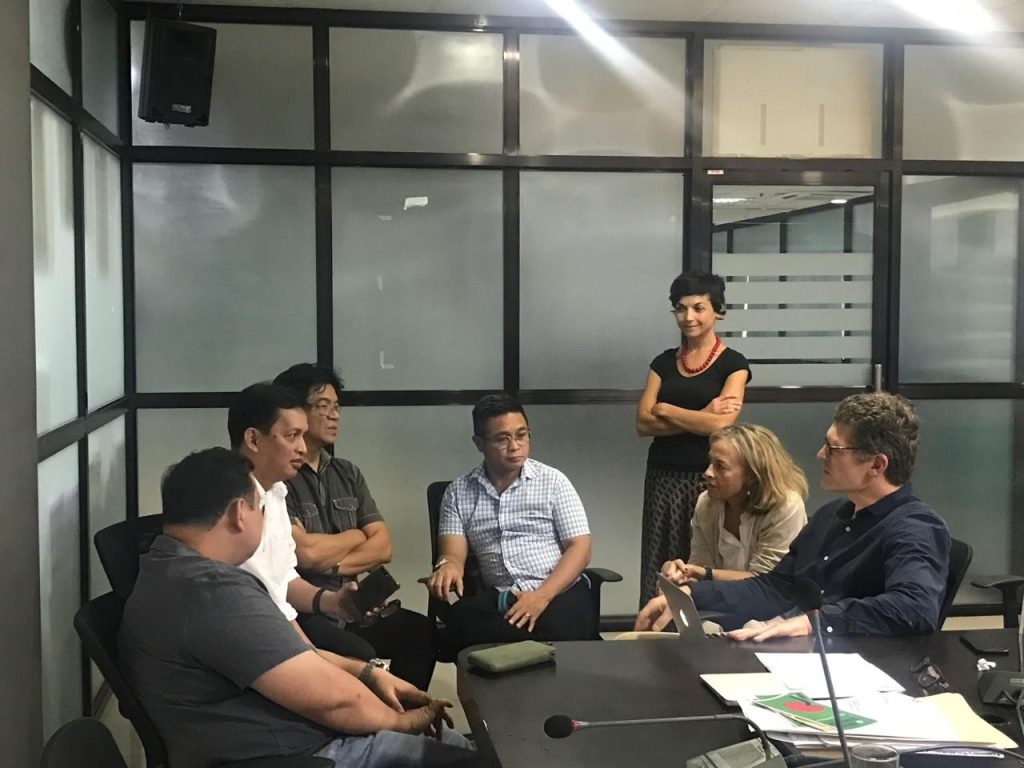
On the 5th to 8th of December the experts from the supporting center Dr. Fritz Diekmann, Dr. Anna Vila and Dr. Entela Kondi visited the SPMC and participated in the Post – Graduate Course in Kidney Transplantation MindaNOW organized in cooperation with the Philippines Society of Nephrologists- Mindanao chapter; supported by the ISN-TTS sister transplant center project.
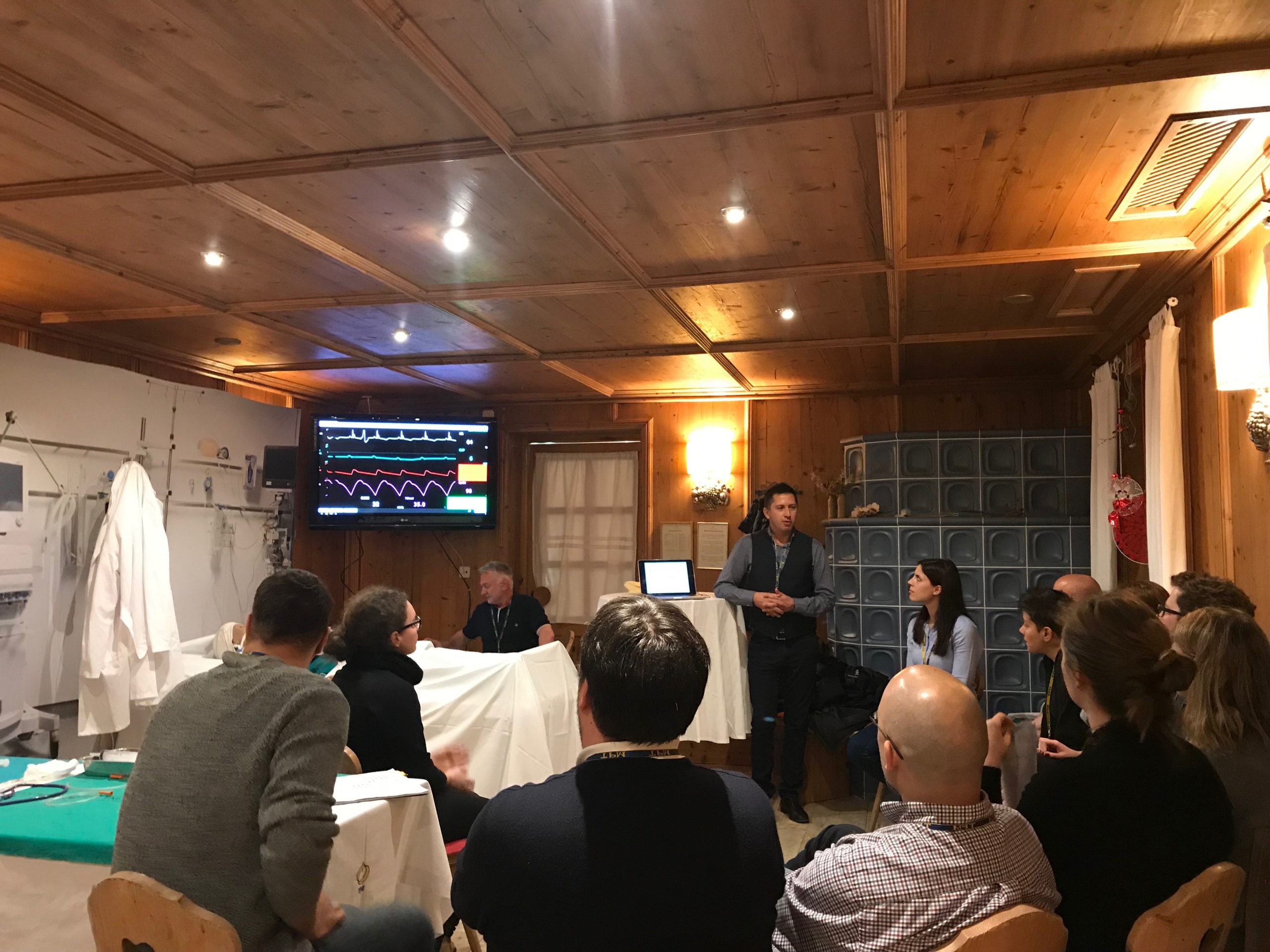
The objective of the visit was to assess the hospital facilities and to discuss with the hospital staff and managers involved in the kidney transplant program. Meetings with transplant nephrologists, surgeons, anesthesiologists, ICU physicians, nurses, pharmacists were organized and information about the clinical practice and protocols were shared. Were visited also the dialysis center of the SPMC and as well as a peripheric dialysis center. During the hospital visit the experts had the chance to participate at the monthly reunion of the interns at the hospital. Moreover, a round table with the patients in dialysis and the post-transplanted patient were organized. Questions and doubts were referred to the experts from the patient and experience on living with a transplant were shared form the recipients. Additionally, the experts participated in the Case Discussion for Transplant Evaluation; the multidisciplinary committee that evaluate the Living Donor – Recipient match.
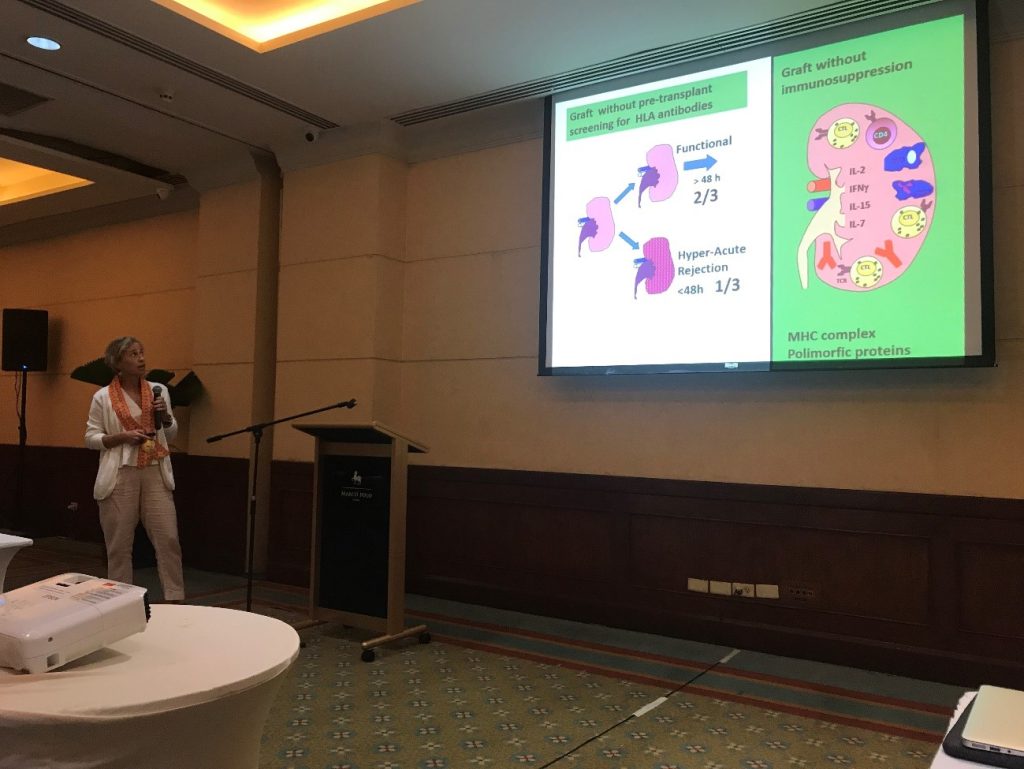
On the following two days 7-8th the Kidney Transplantation MindaNOW took place and the experts form the supporting center were actively involved in lessons and clinical case discussions with the participants. Talks about immunological assessment, immunosuppression protocols, cancer and cardiovascular risk of the transplanted patients were given by the Spanish experts, meanwhile the local experts explained about the medical assessment, work up of the living kidney donor for transplantation and surgical evaluation and post-operation of the patient.
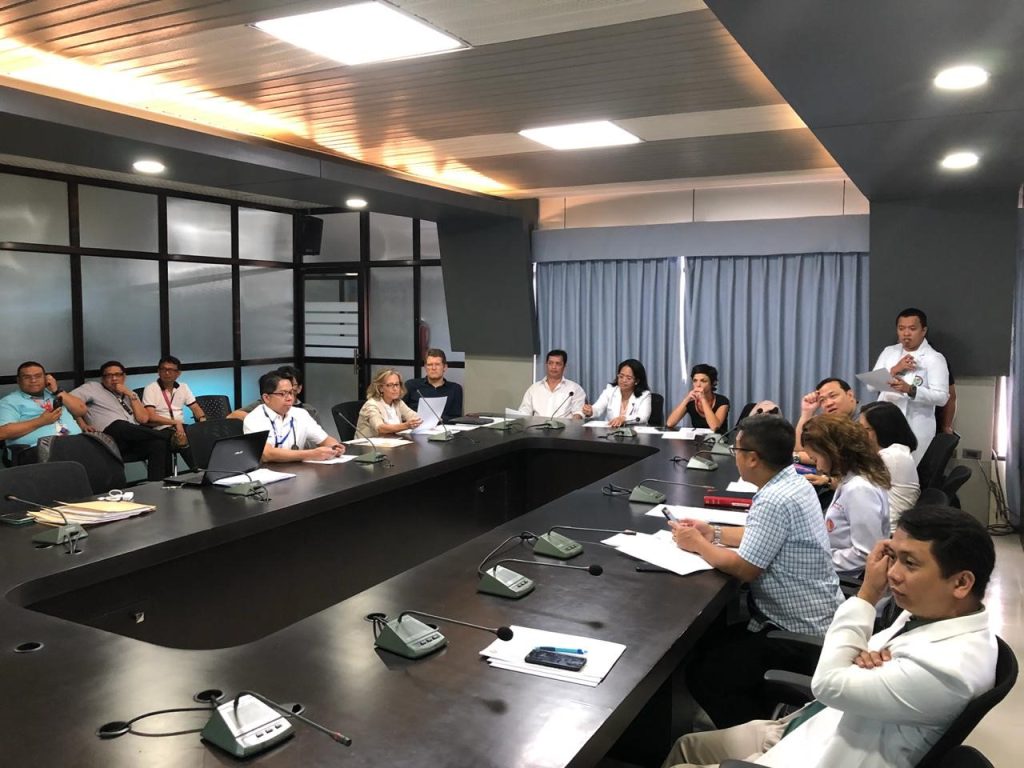
A detailed report with recommendations and comments will be delivered to the SPMC and proposals for further initiatives will follow.




